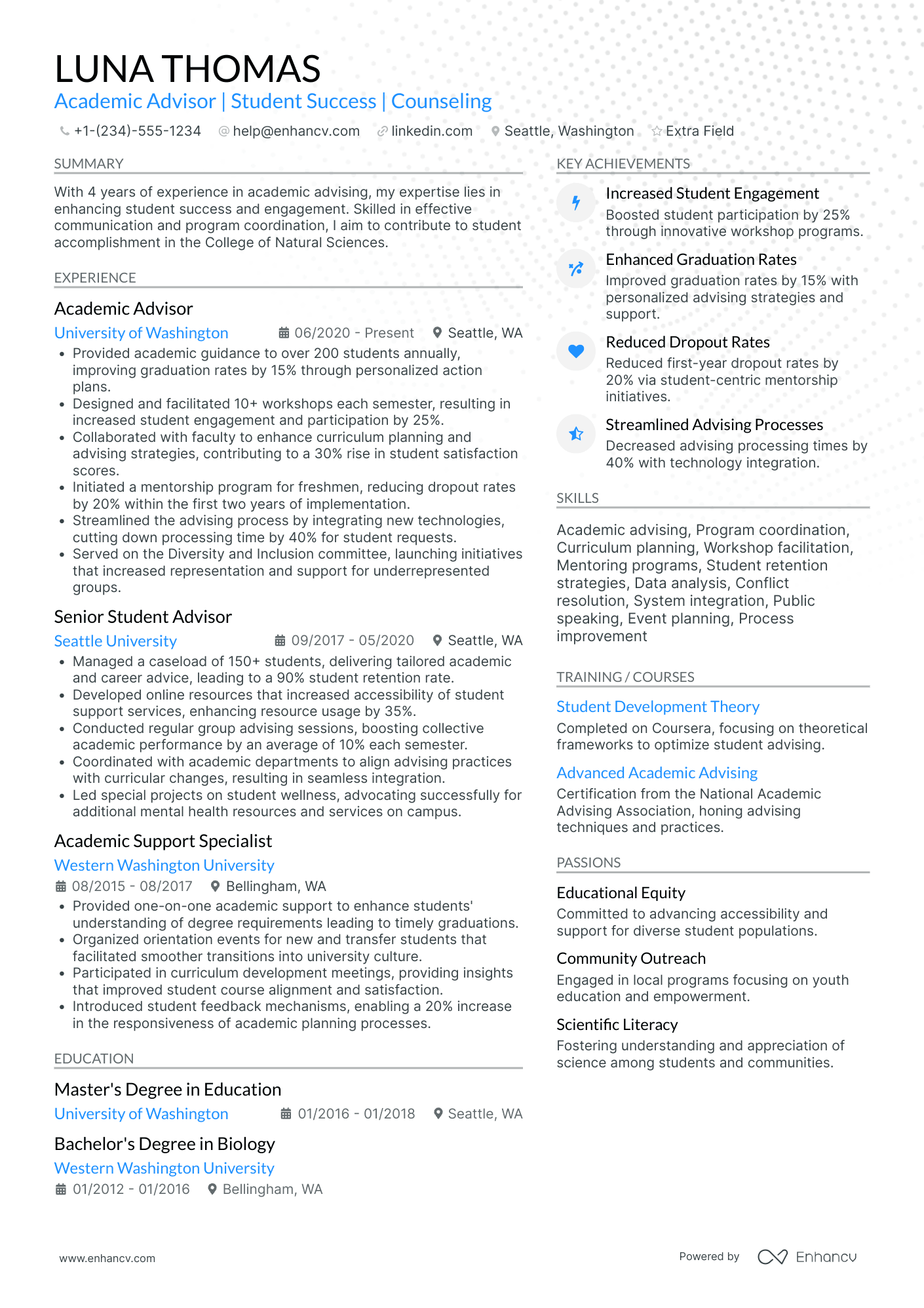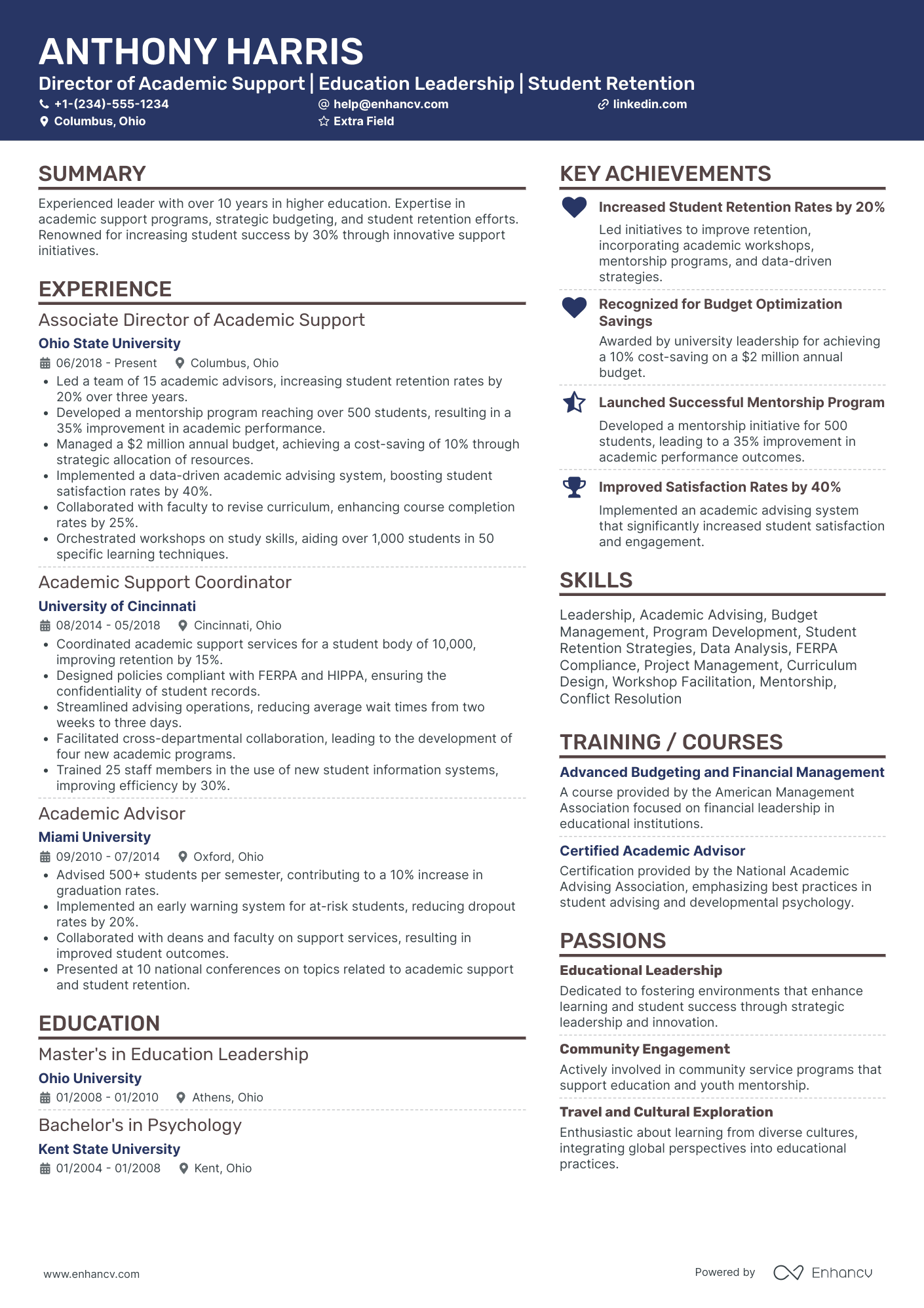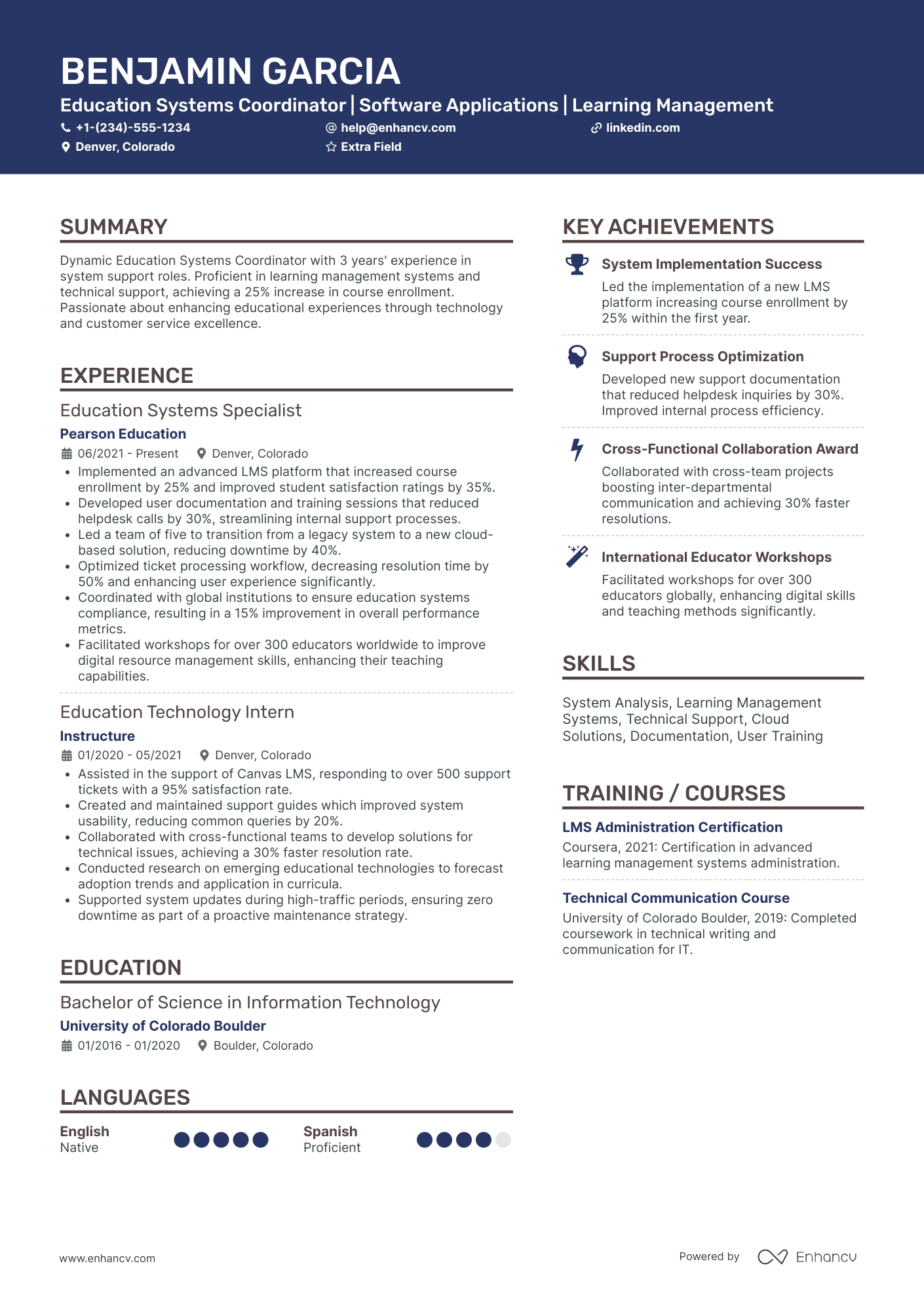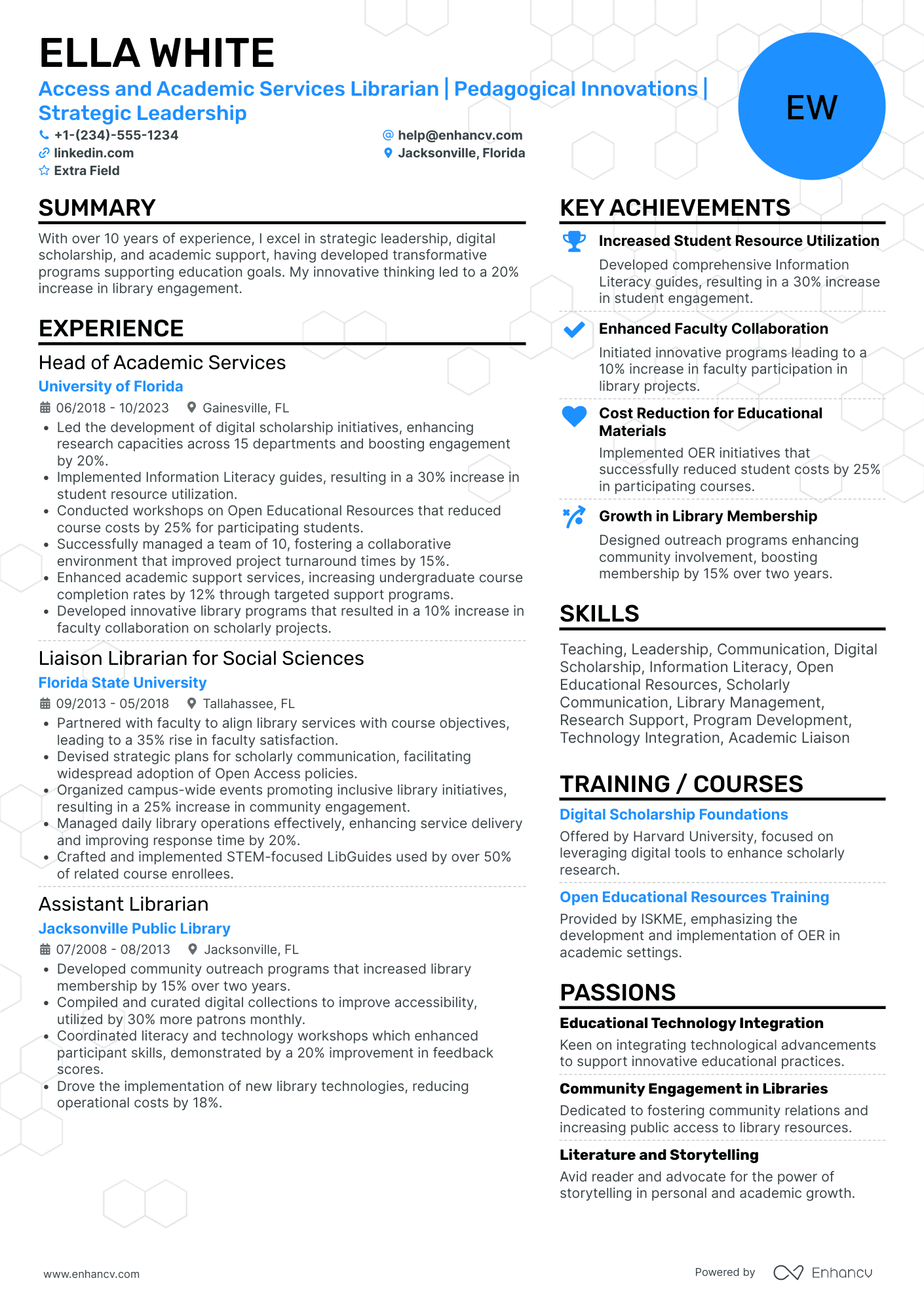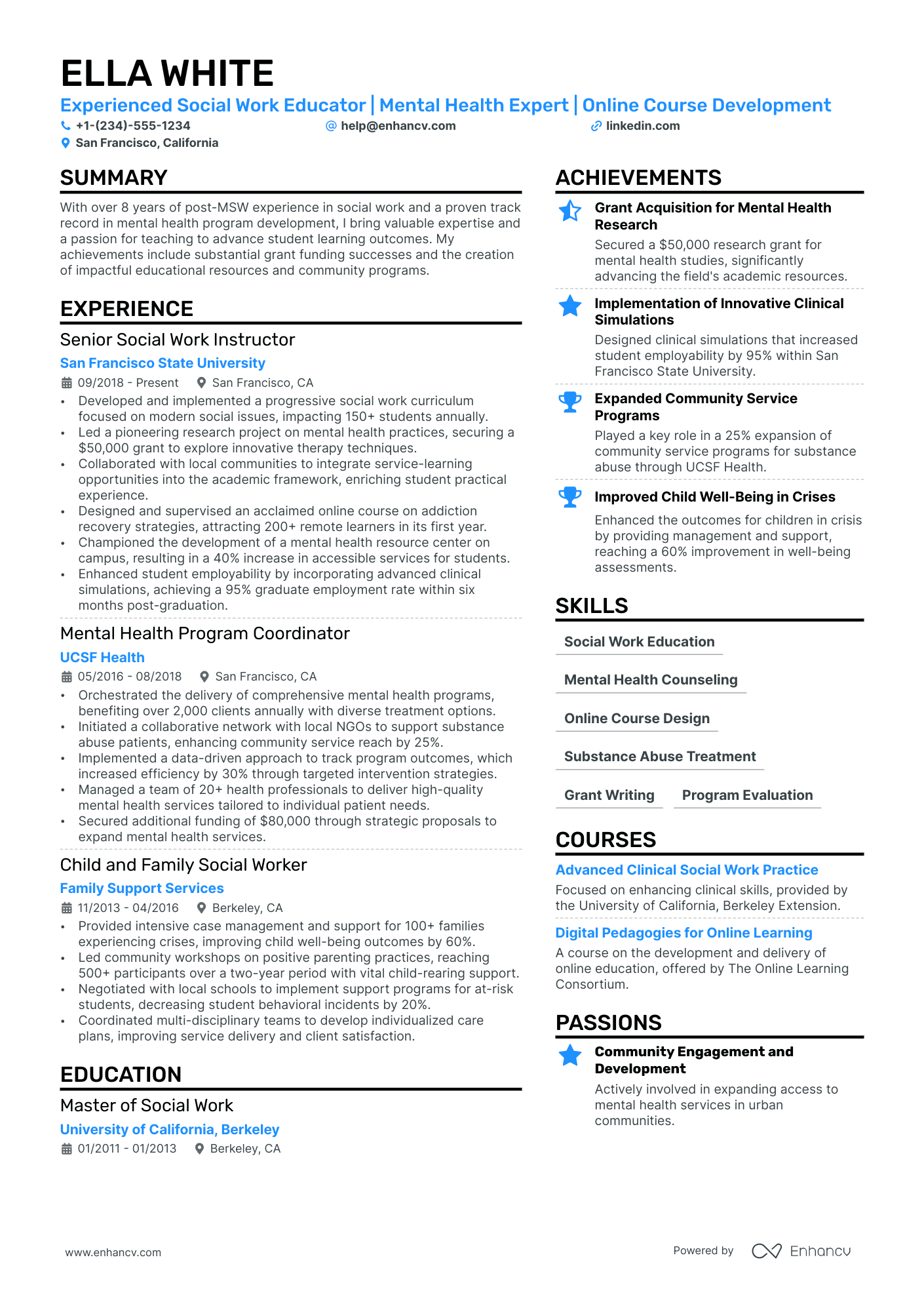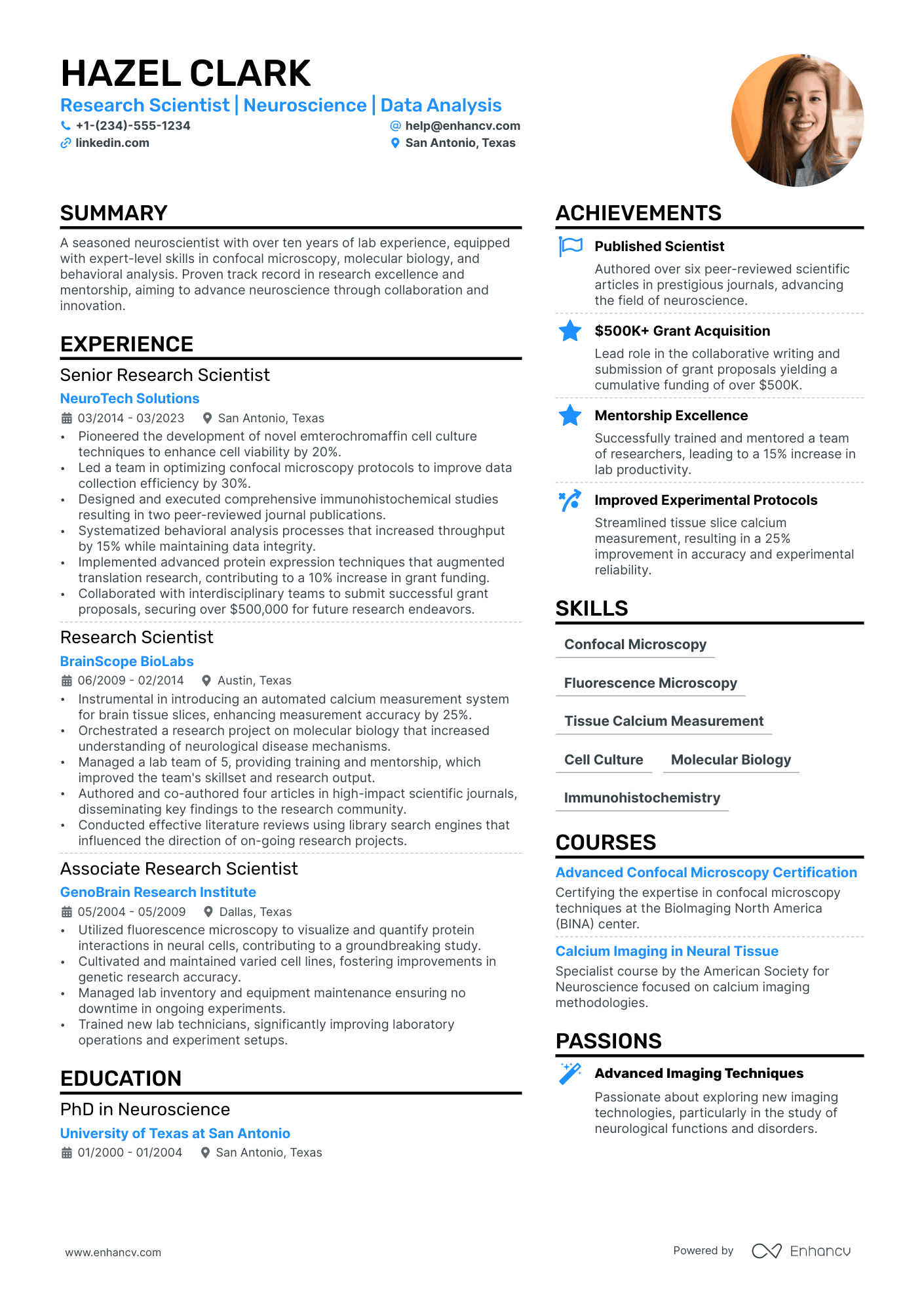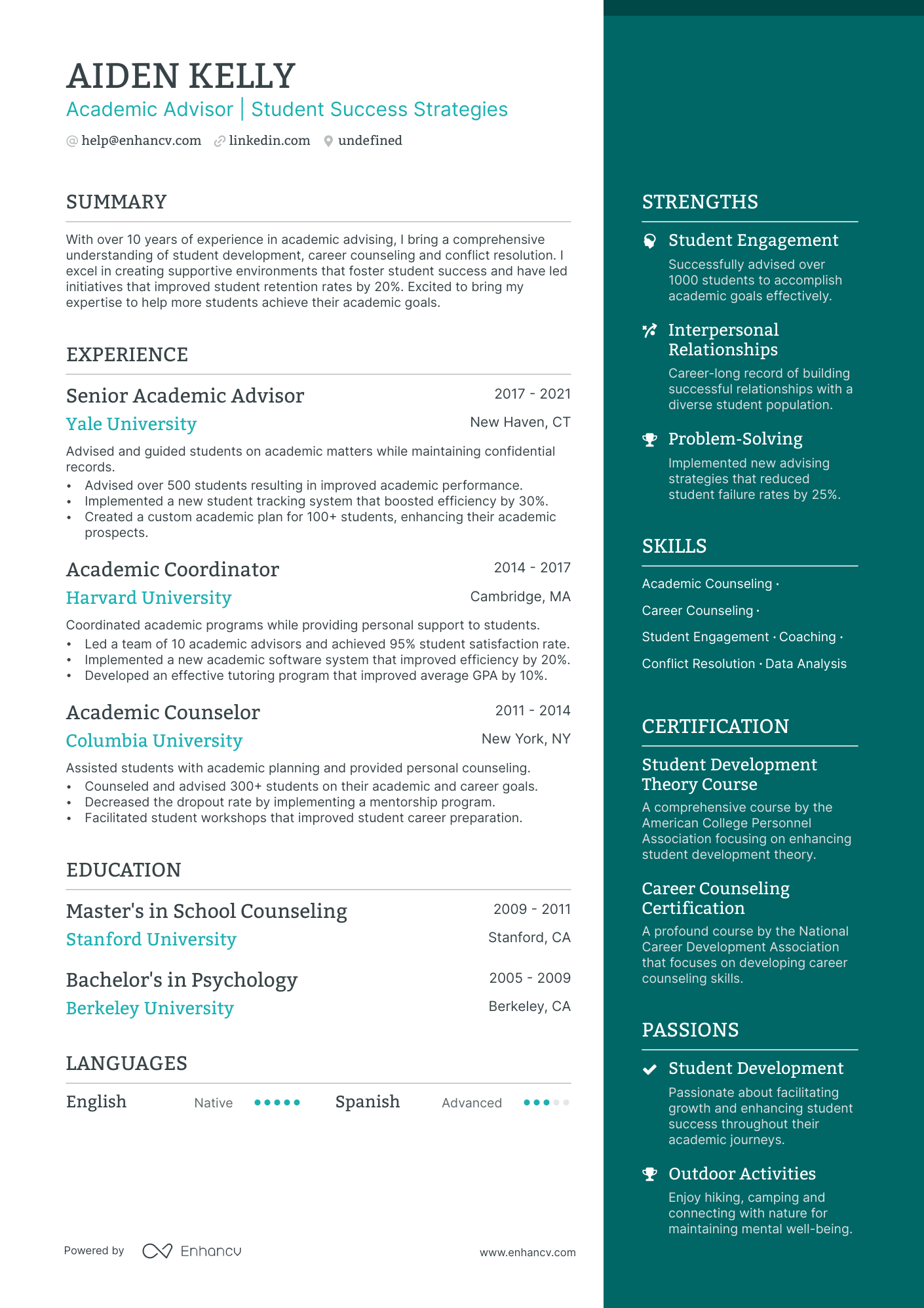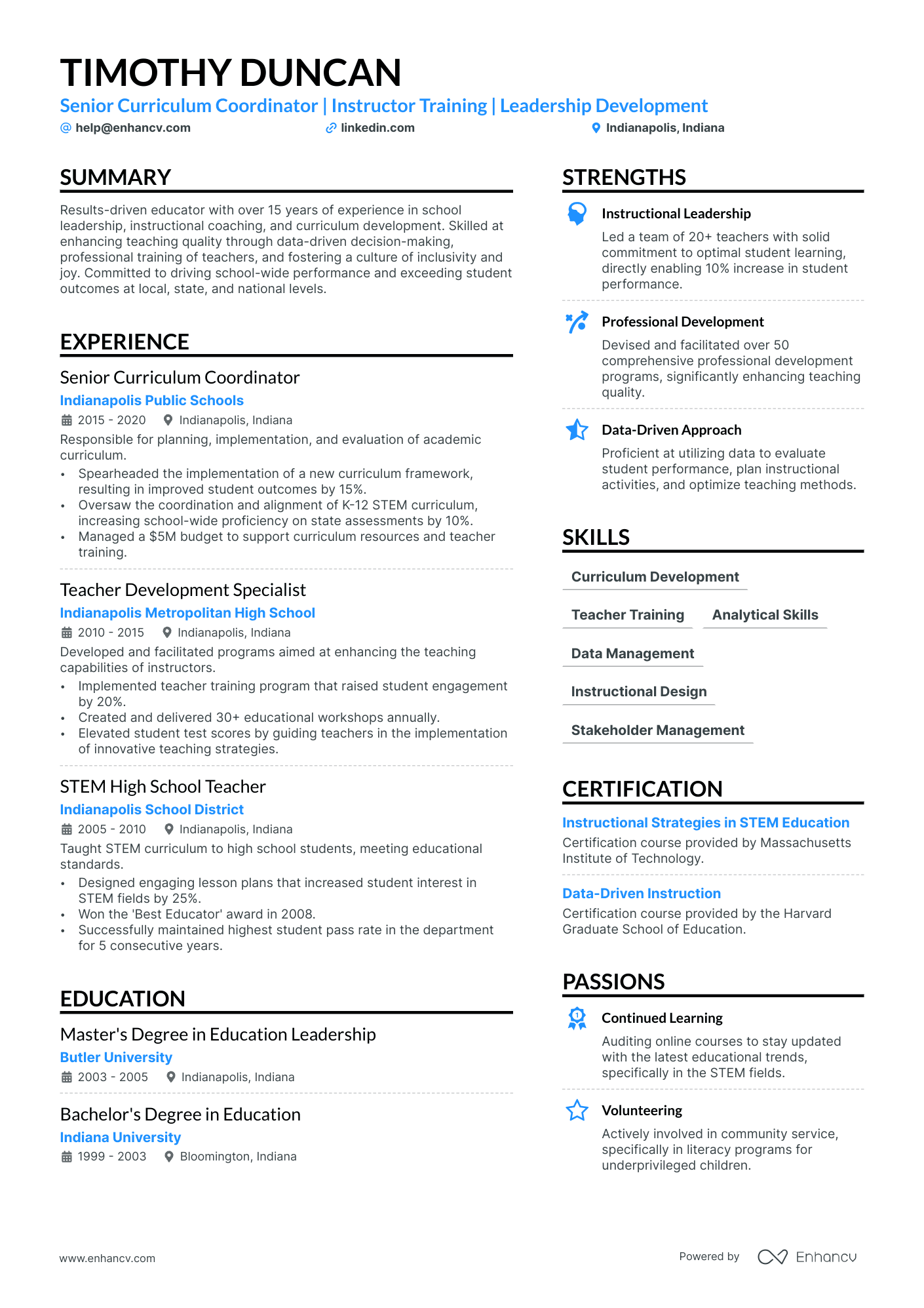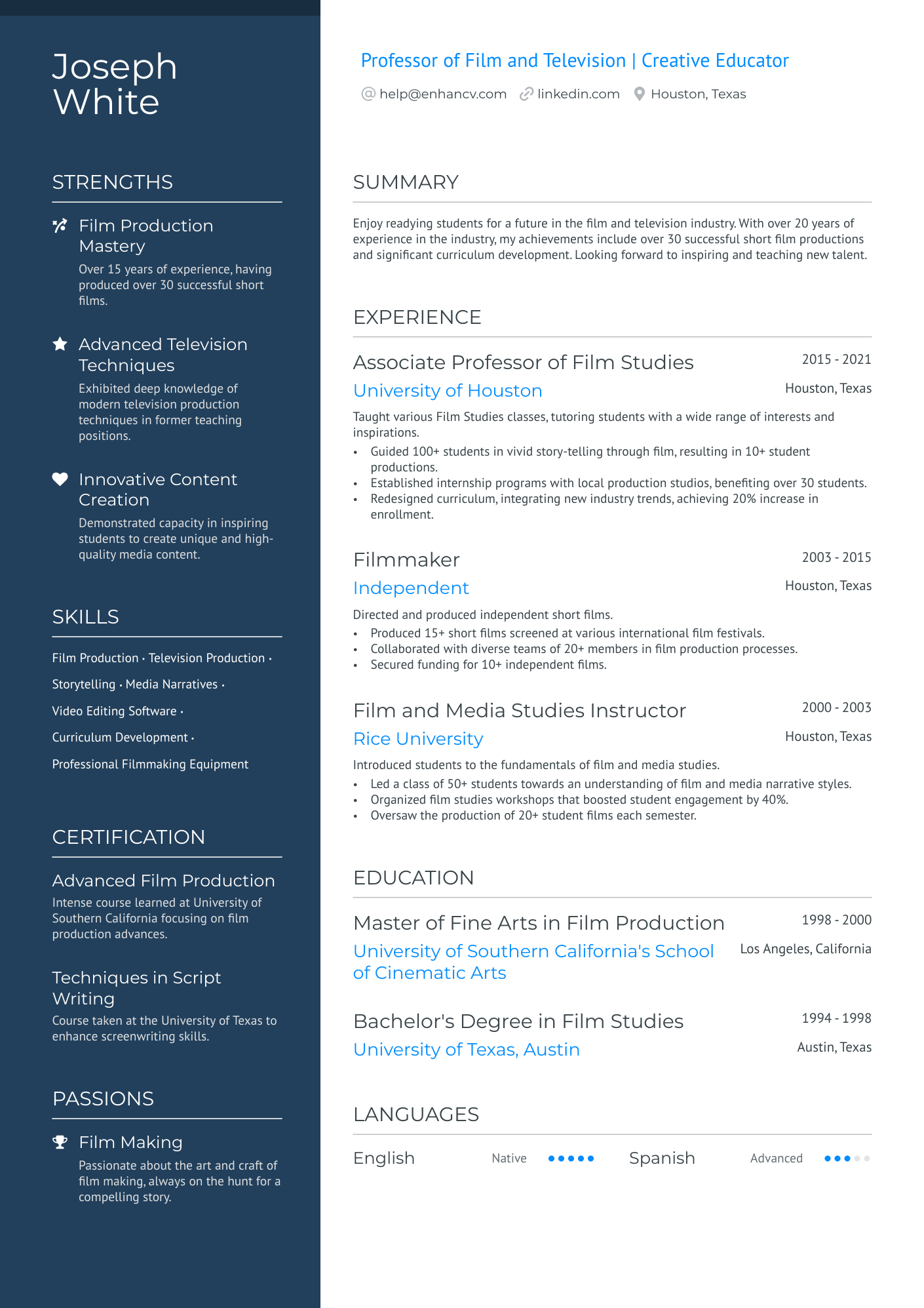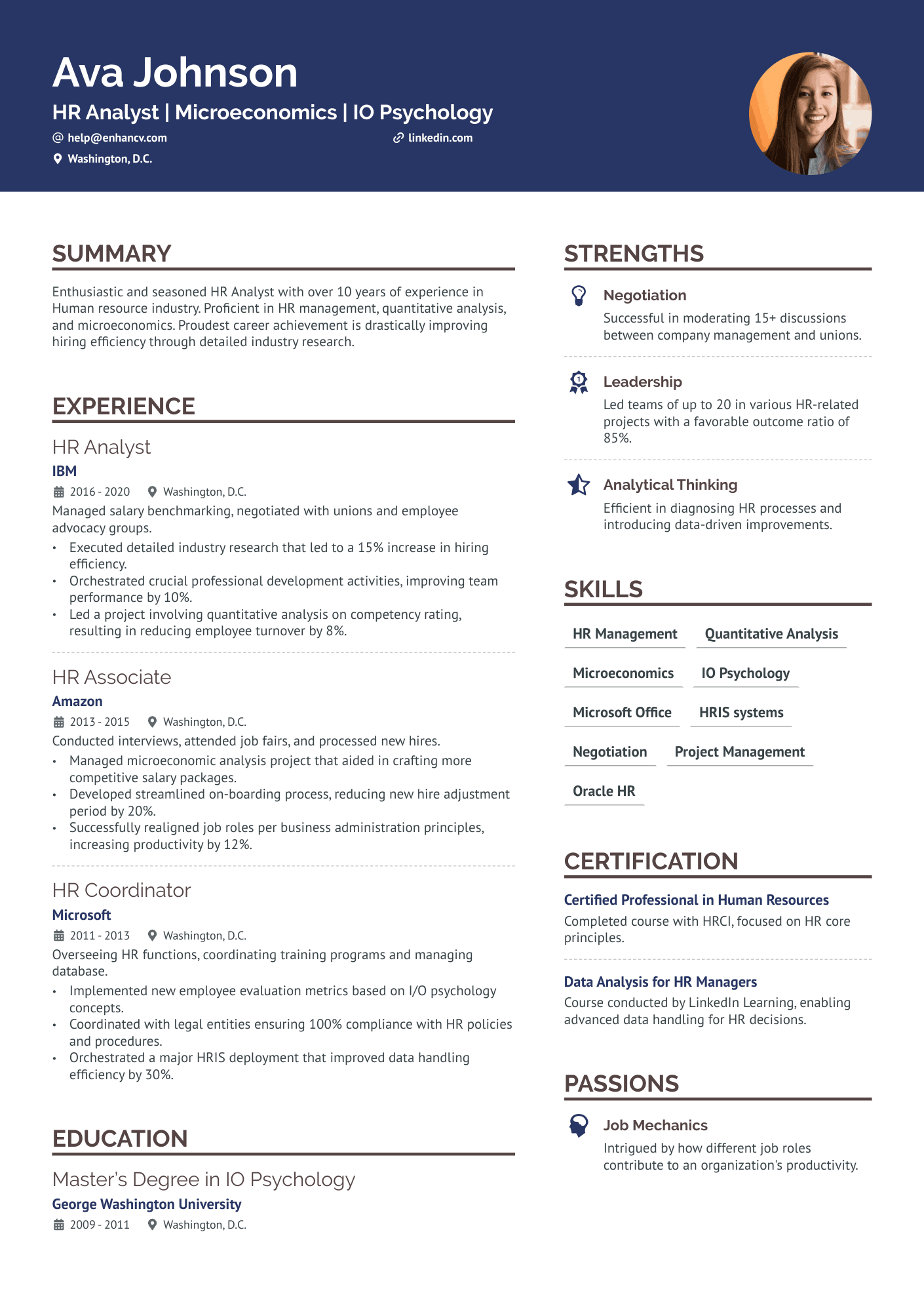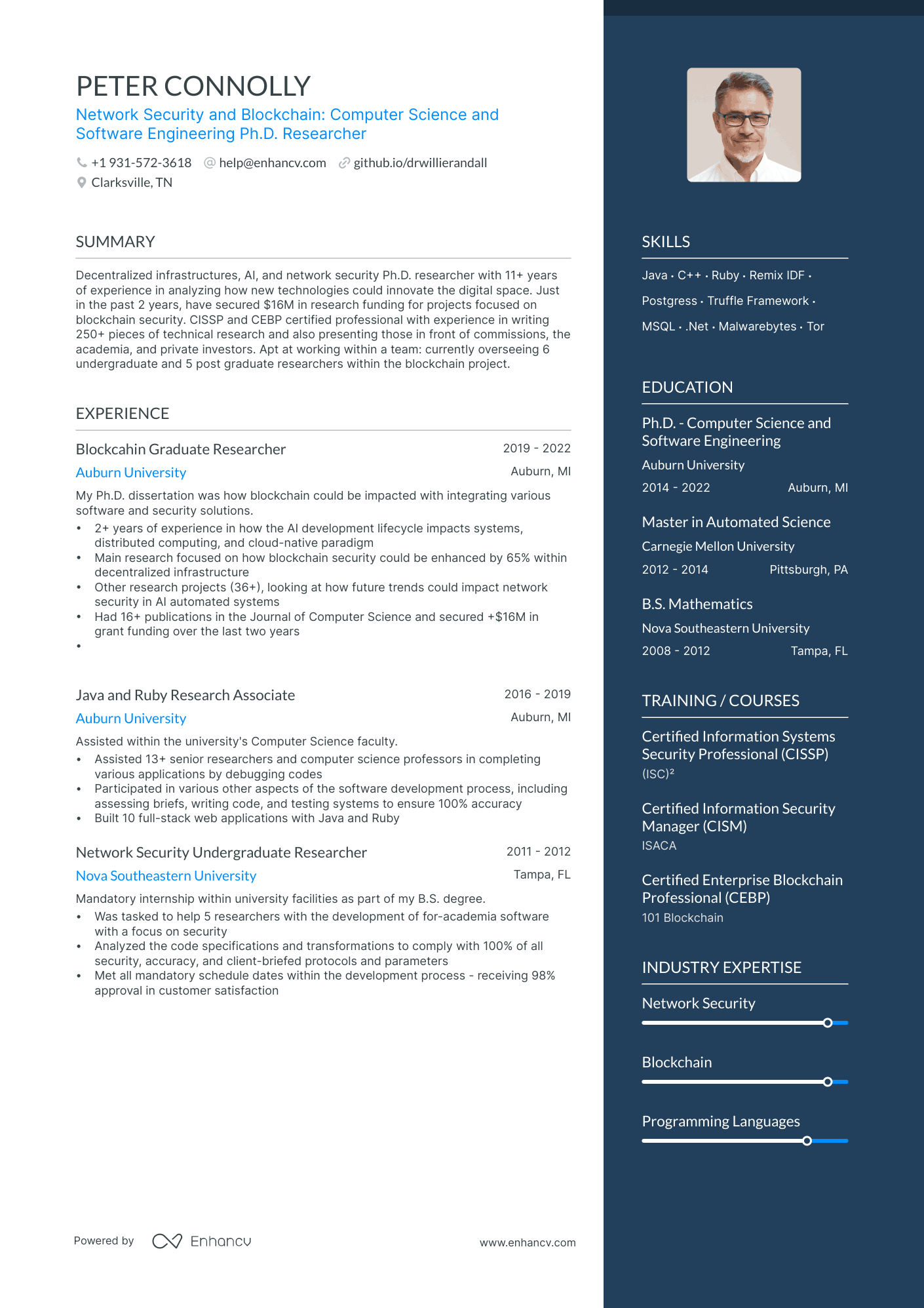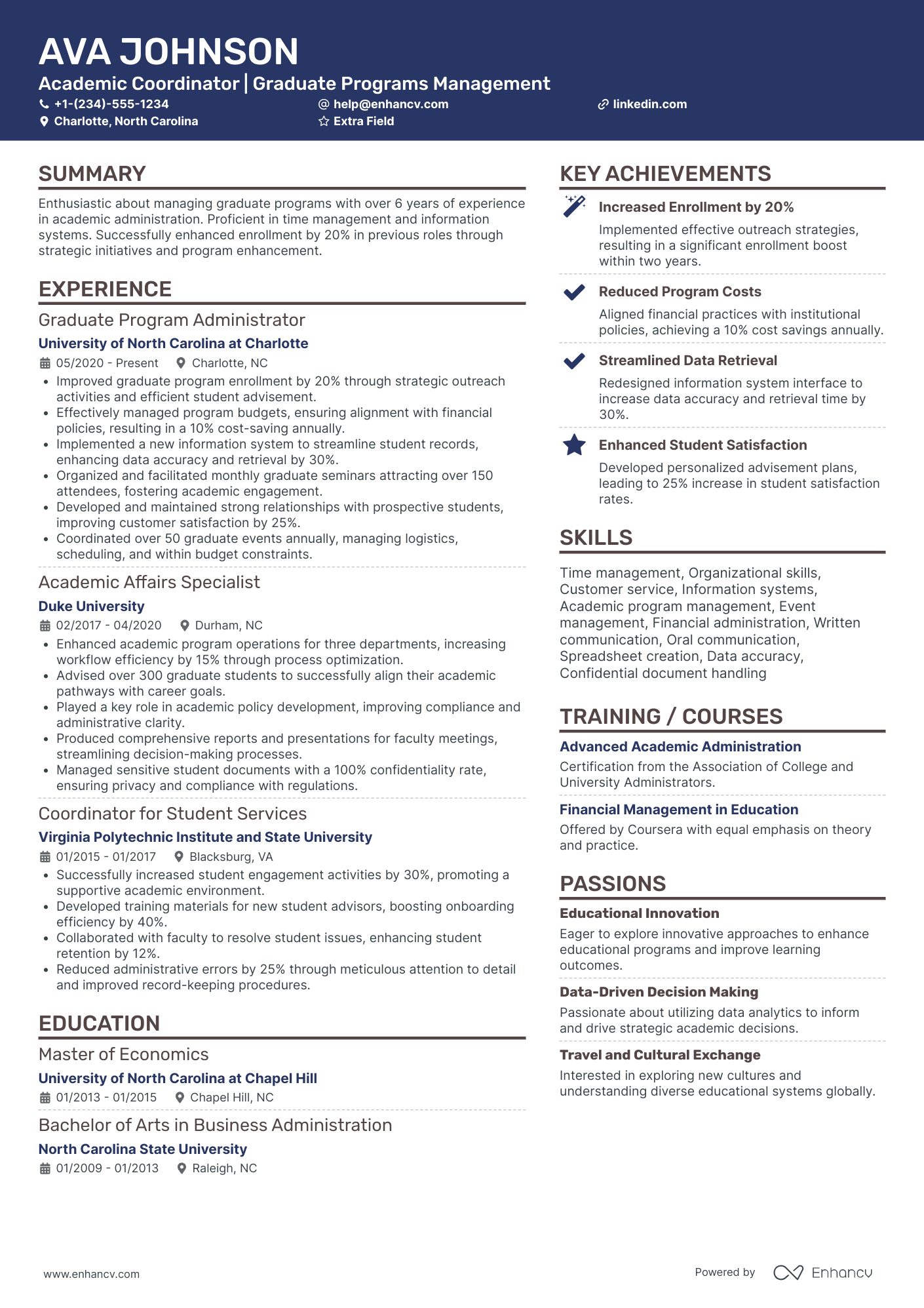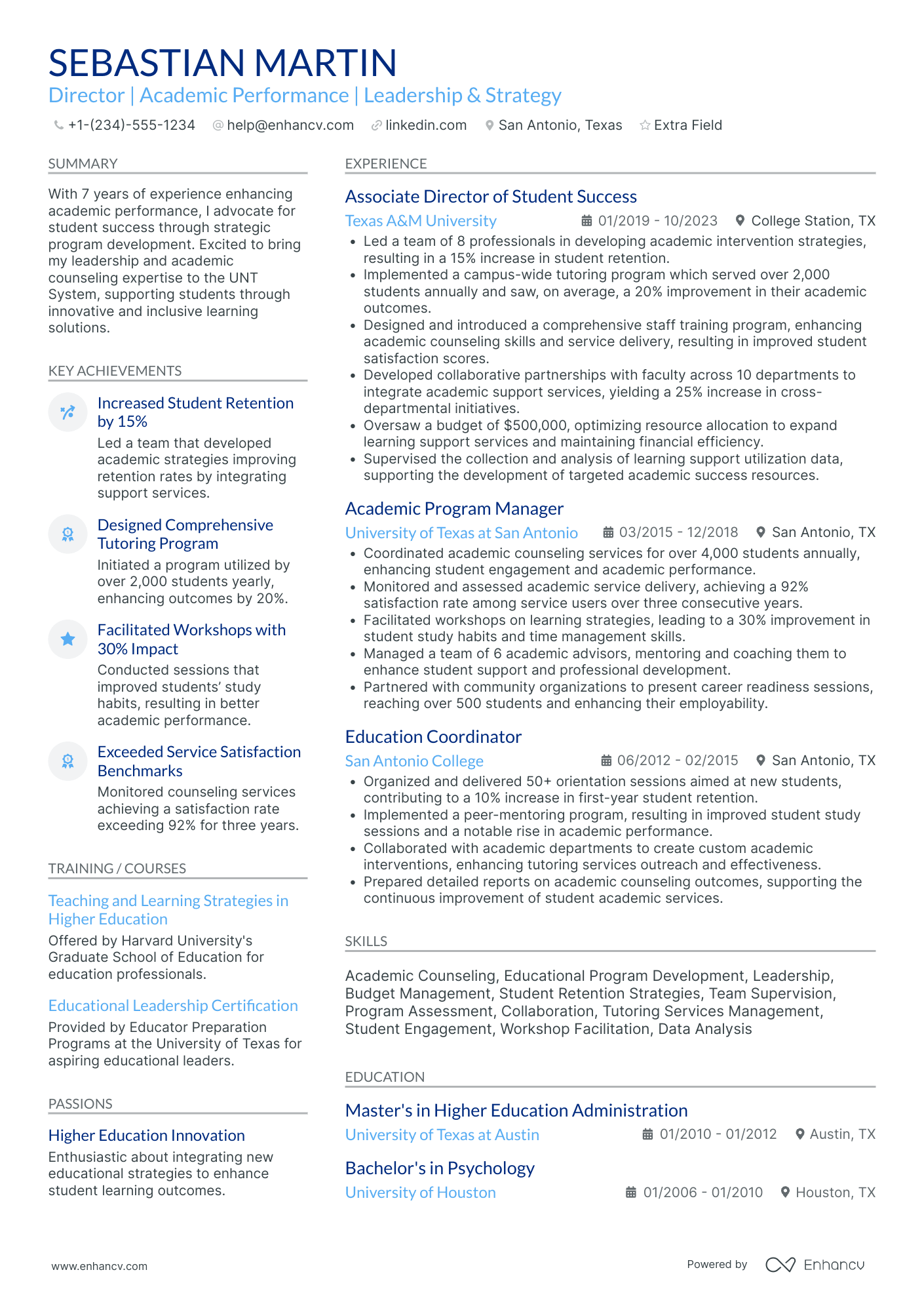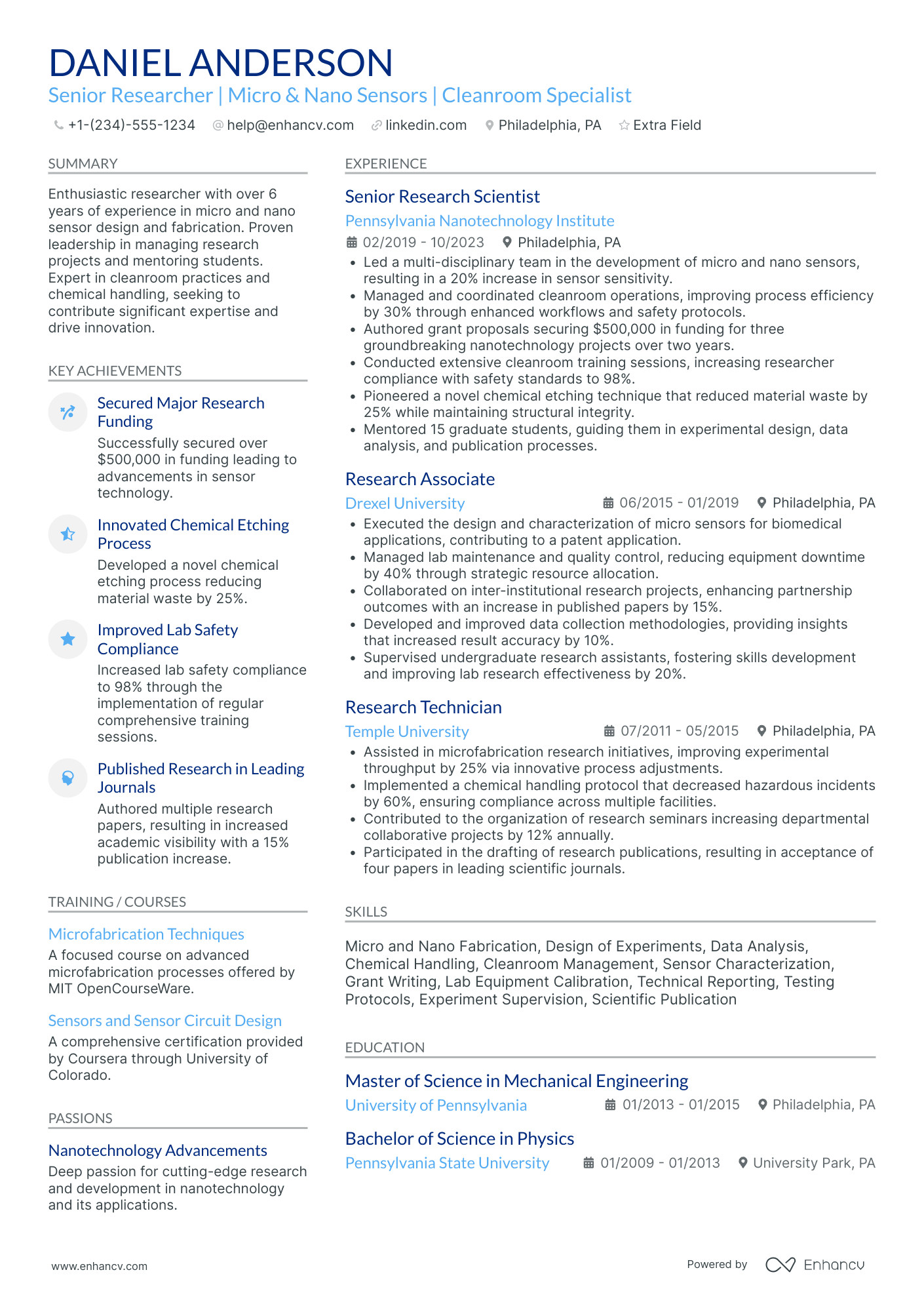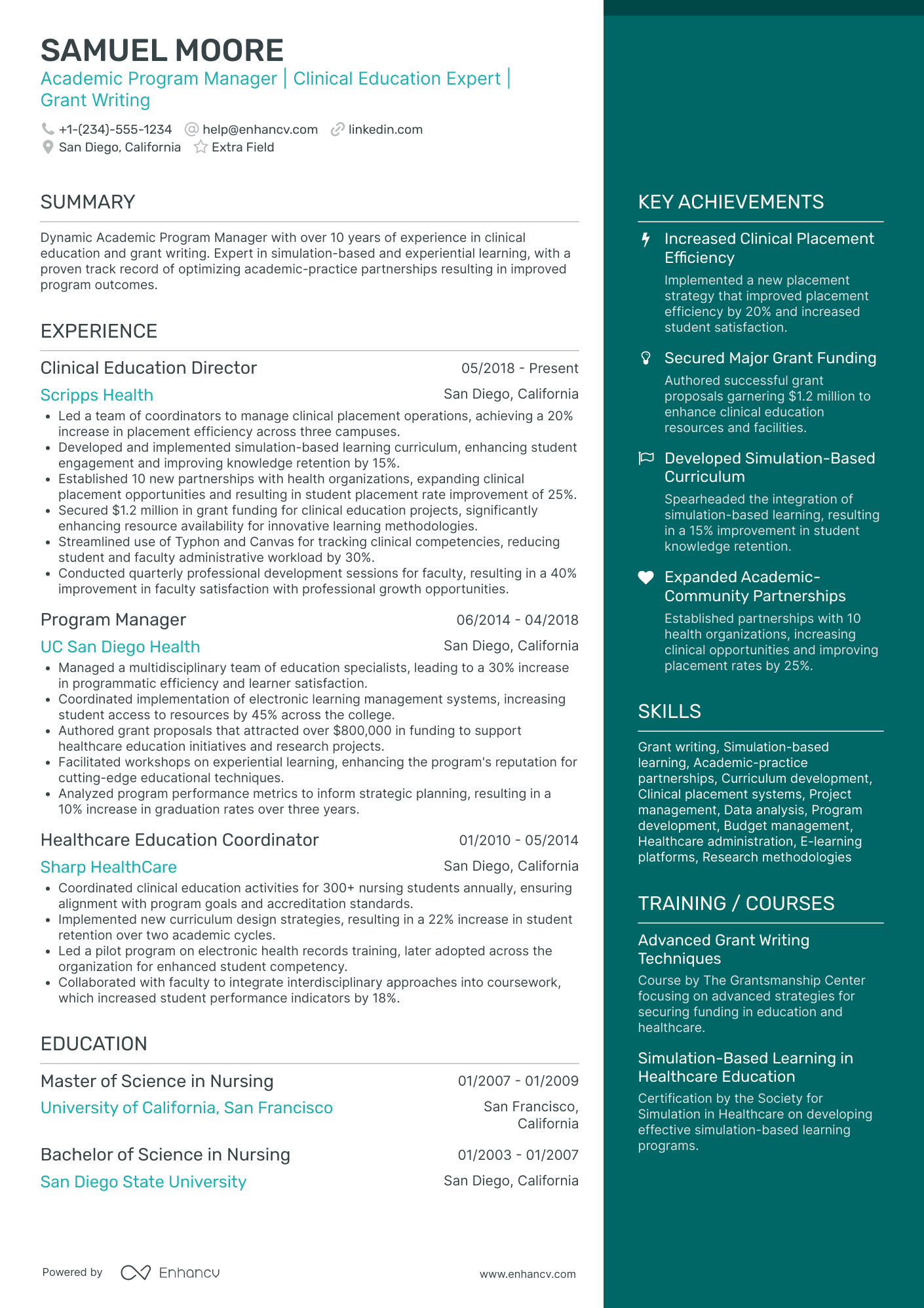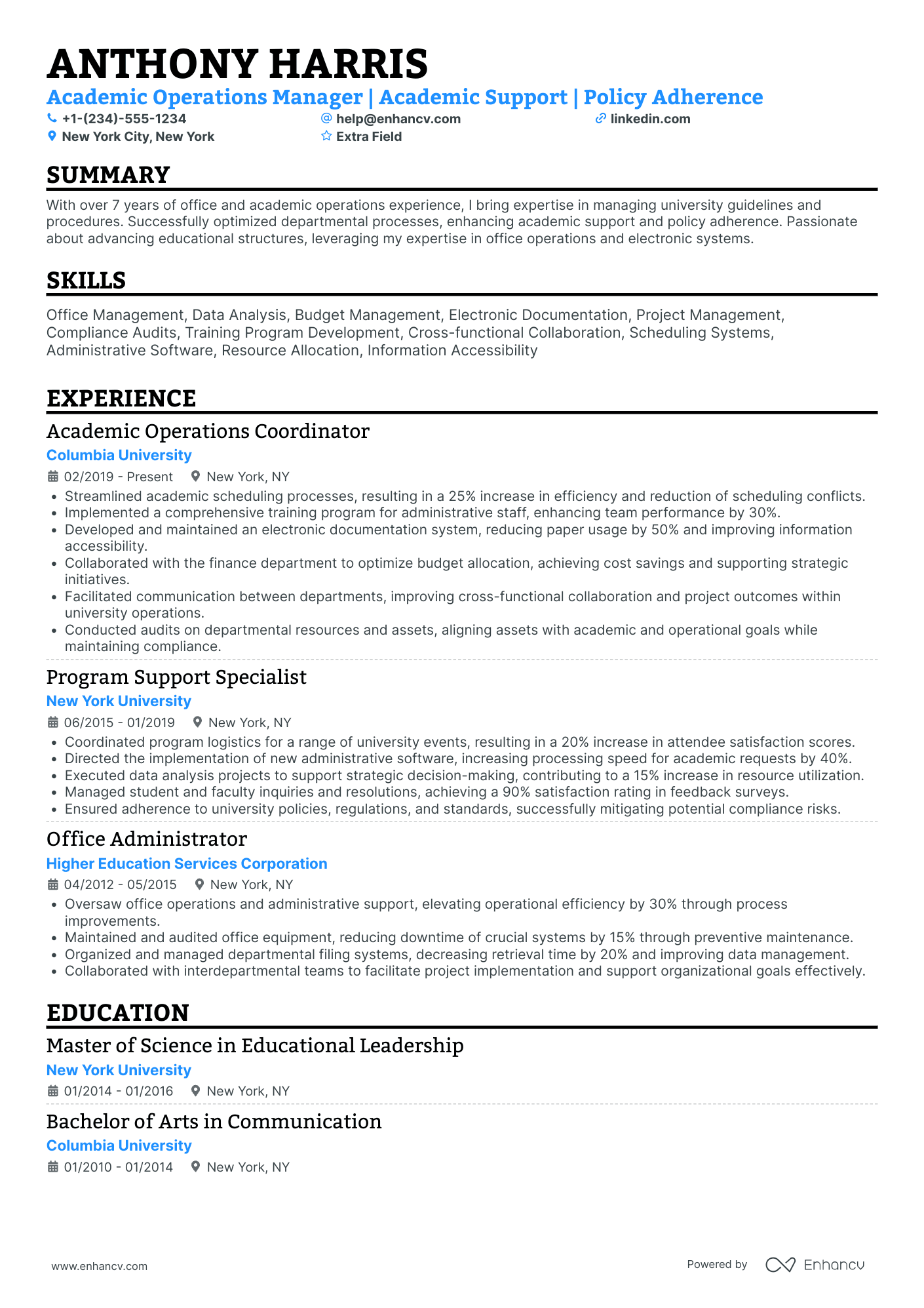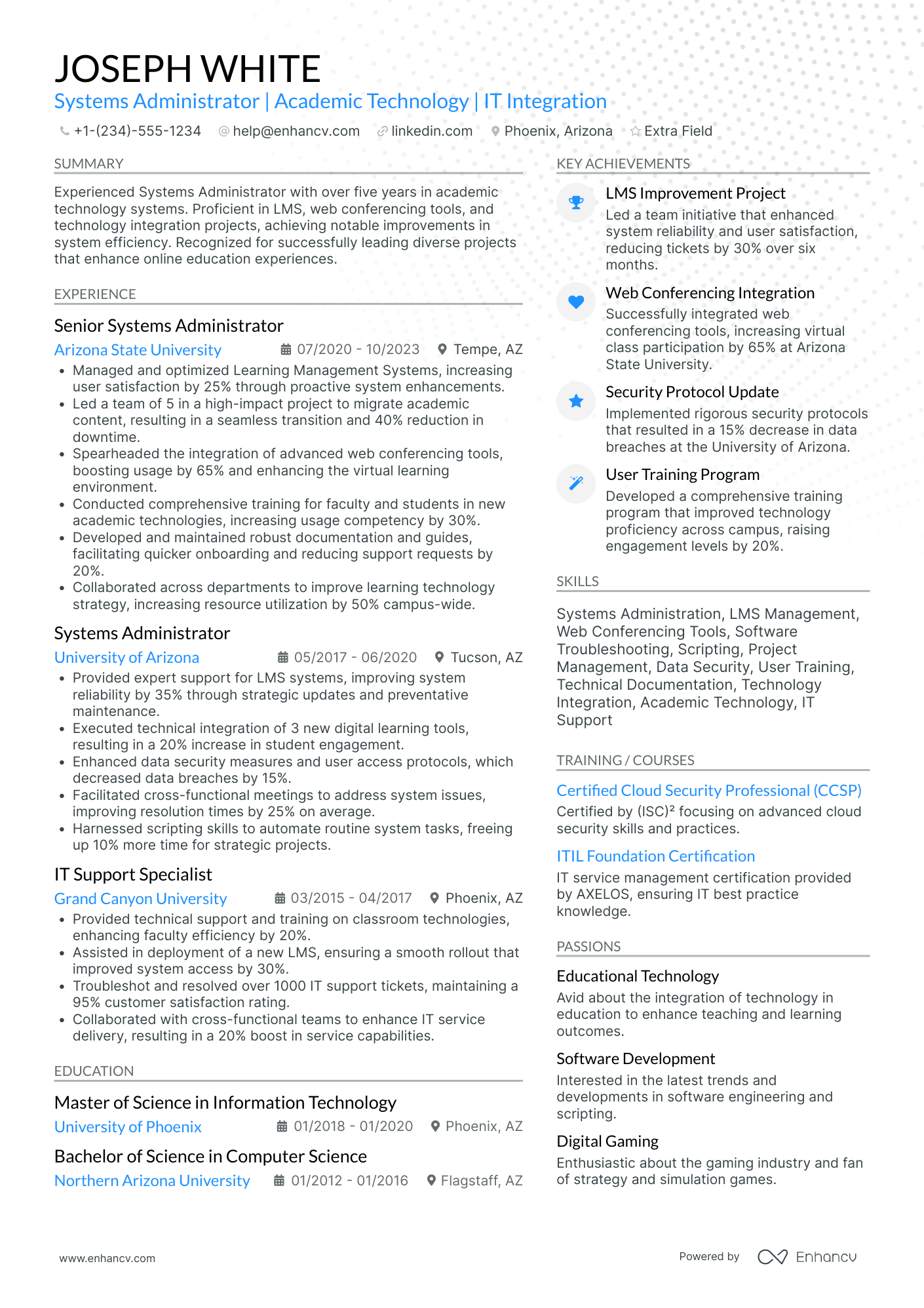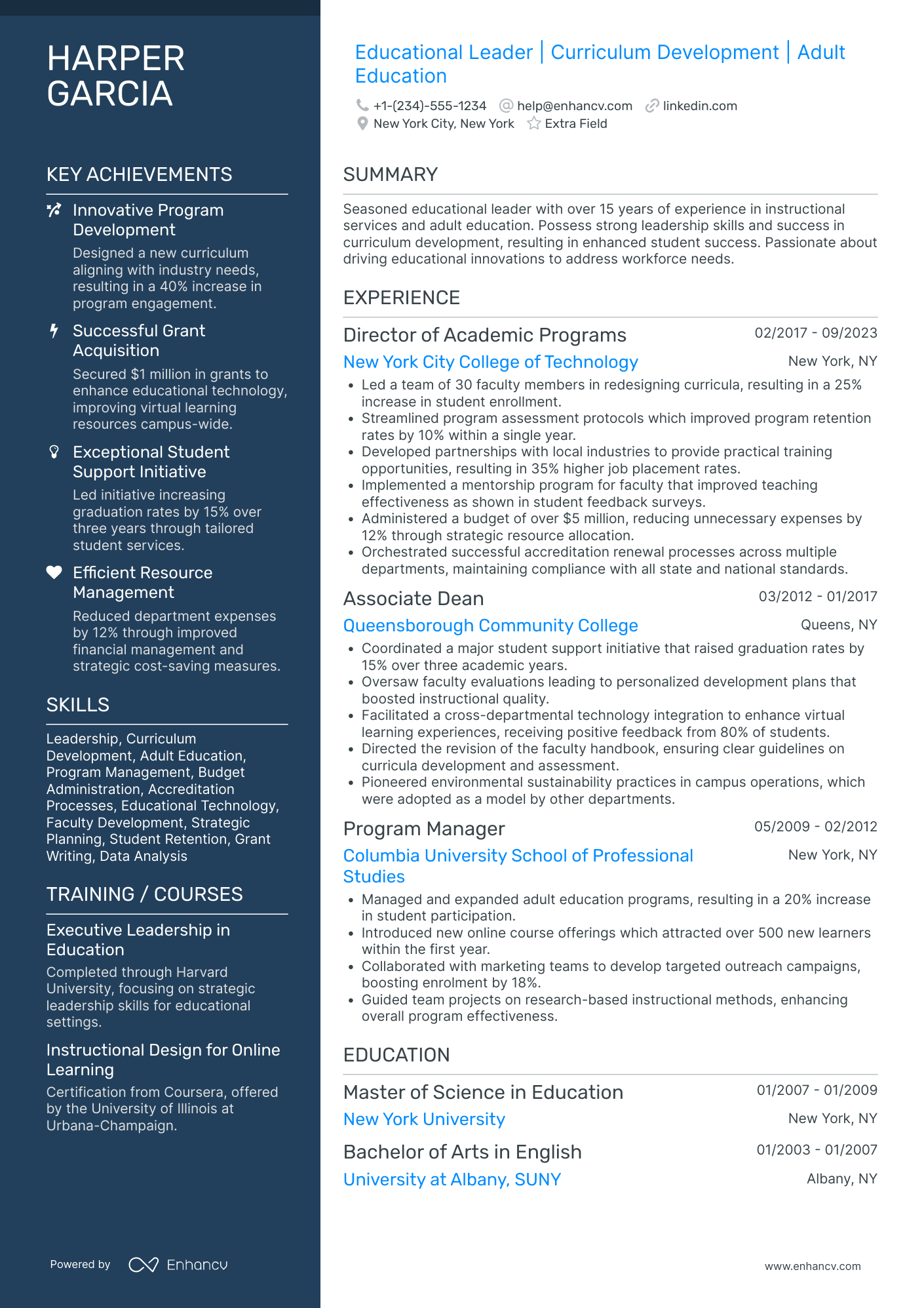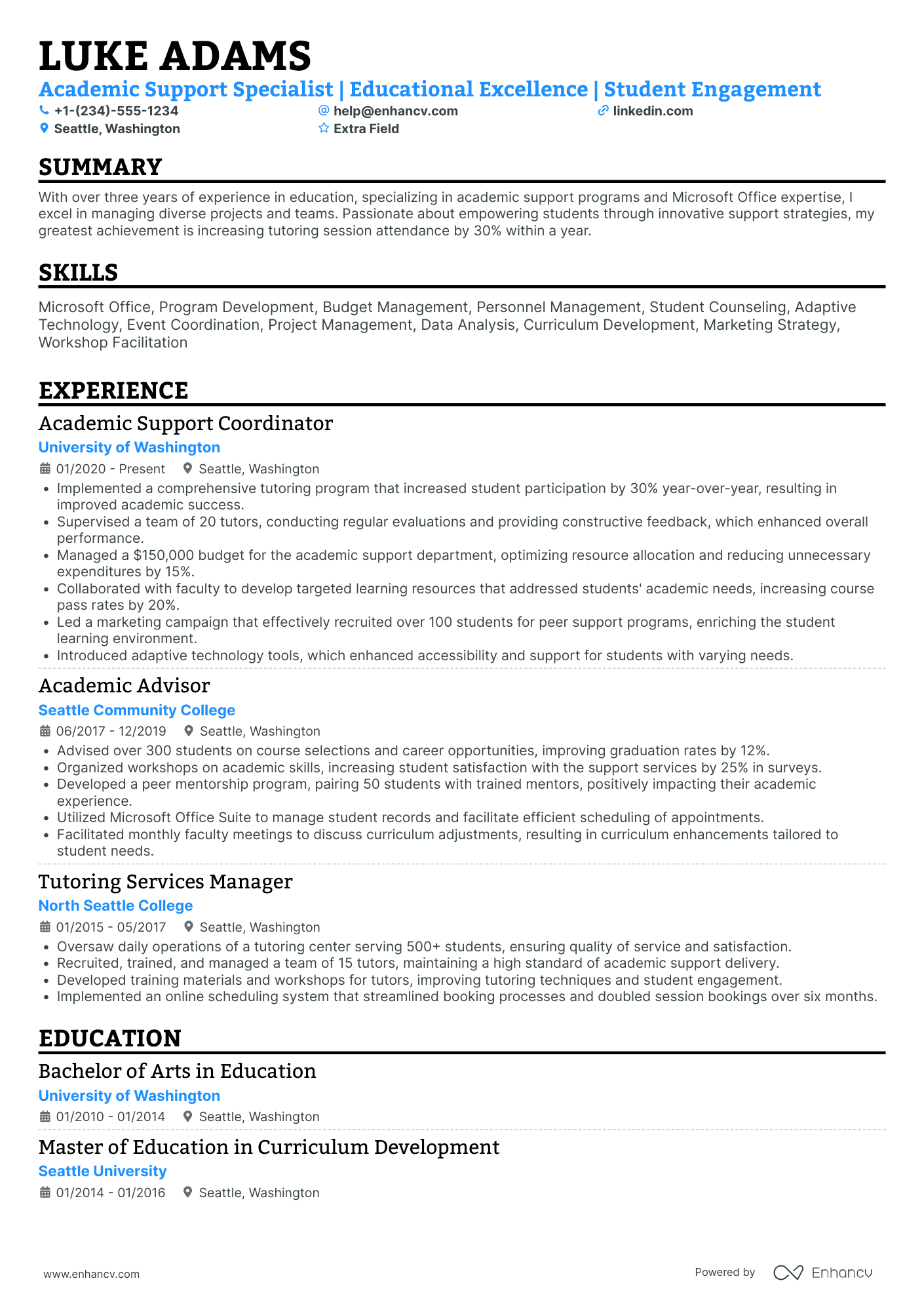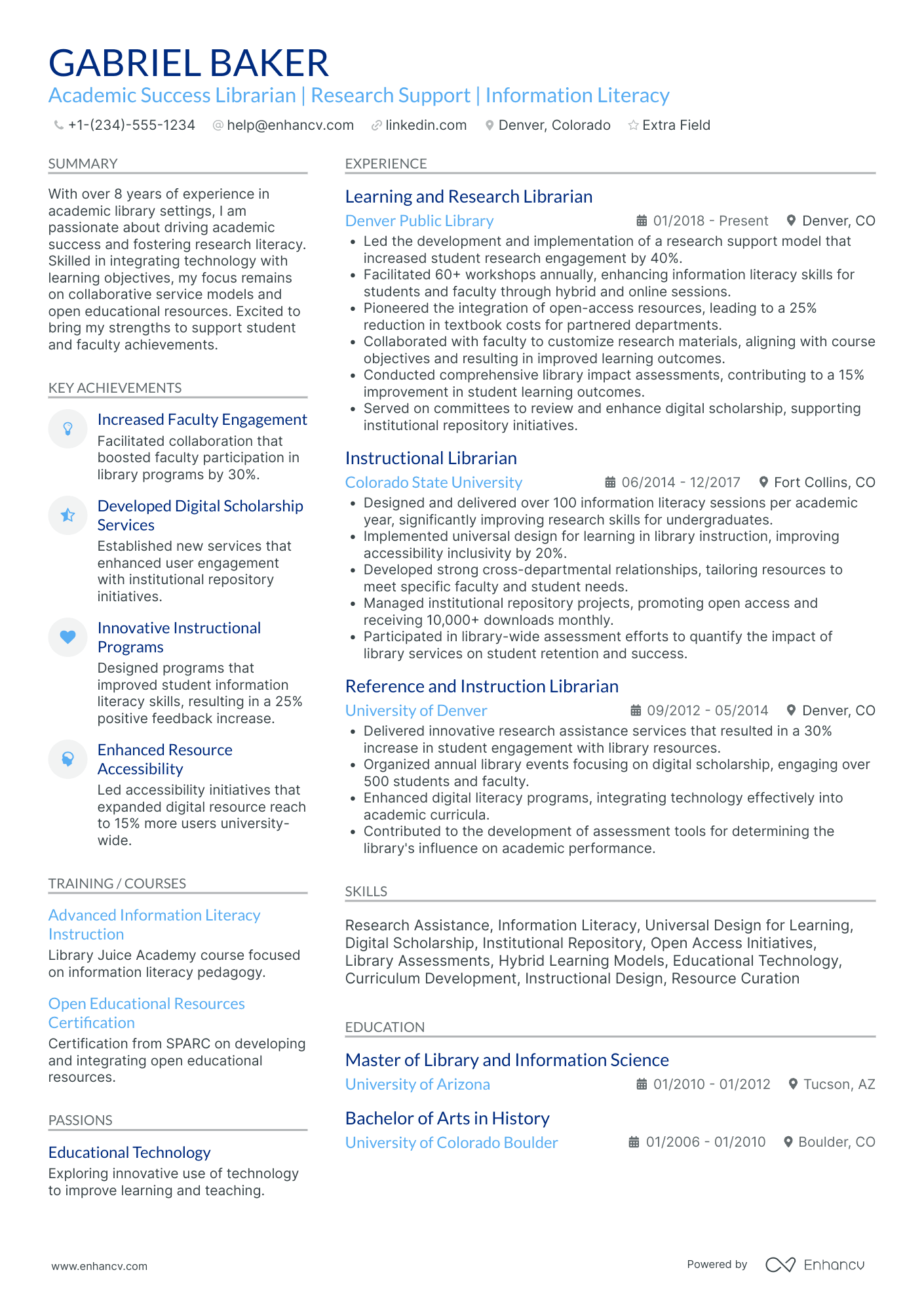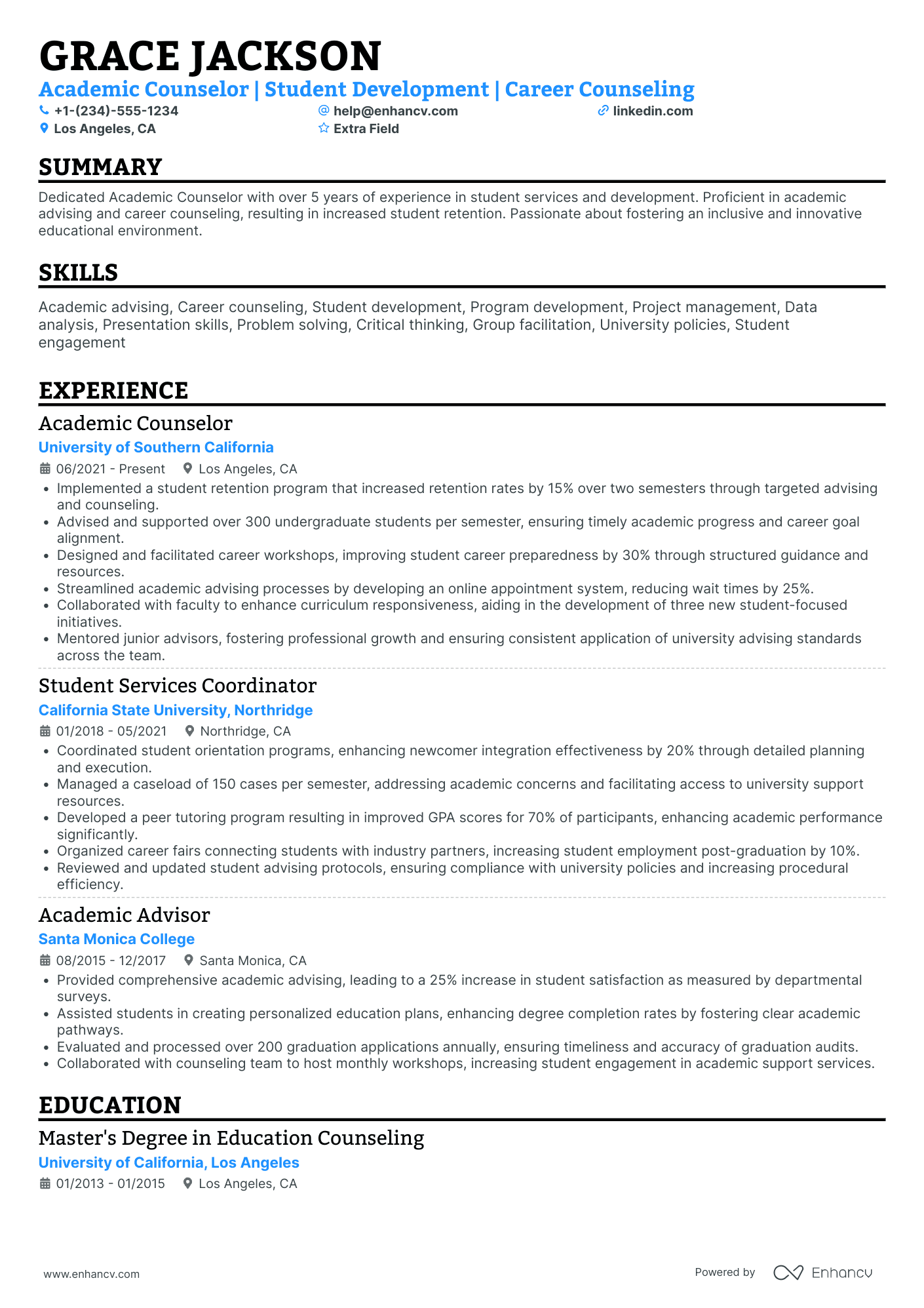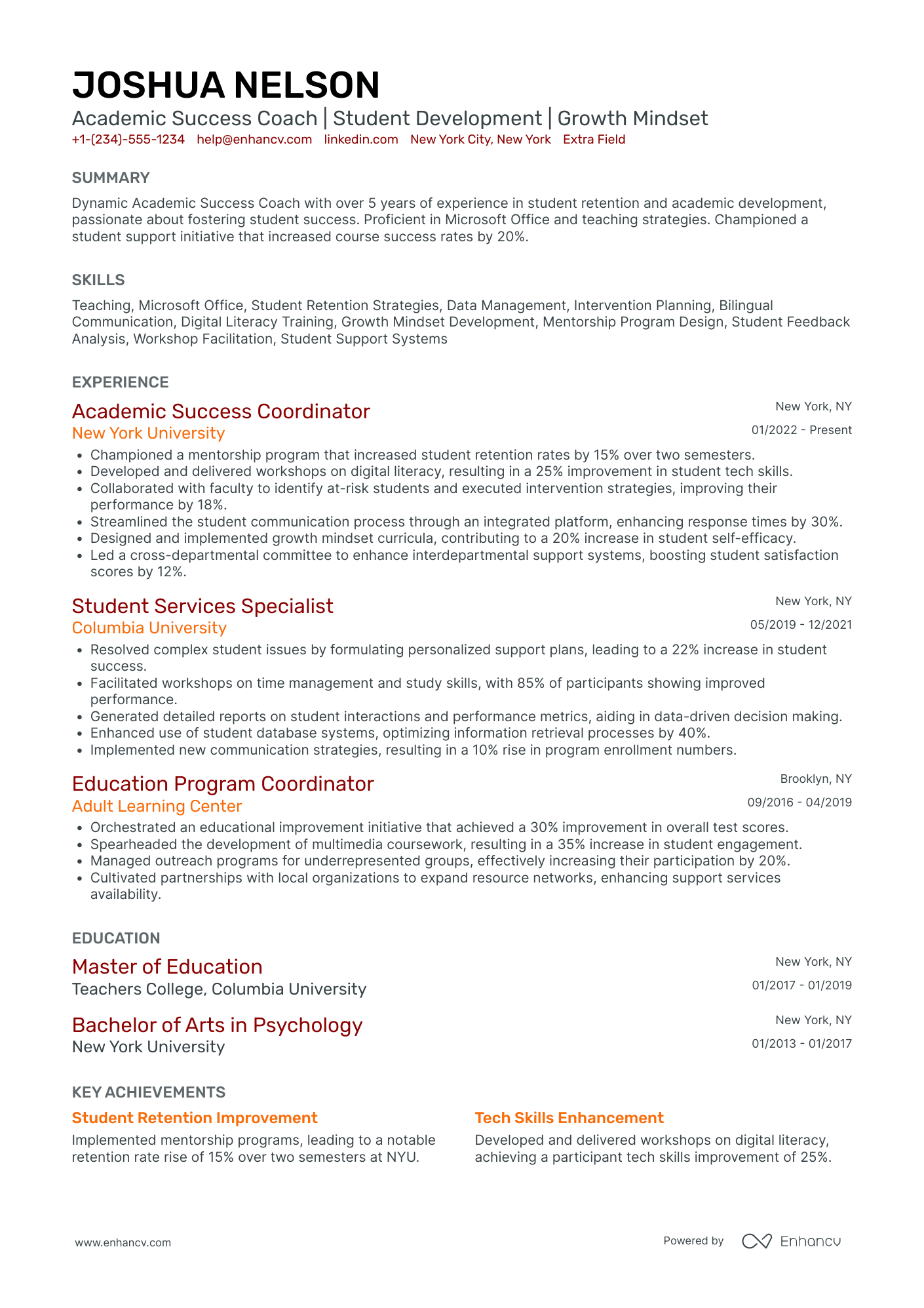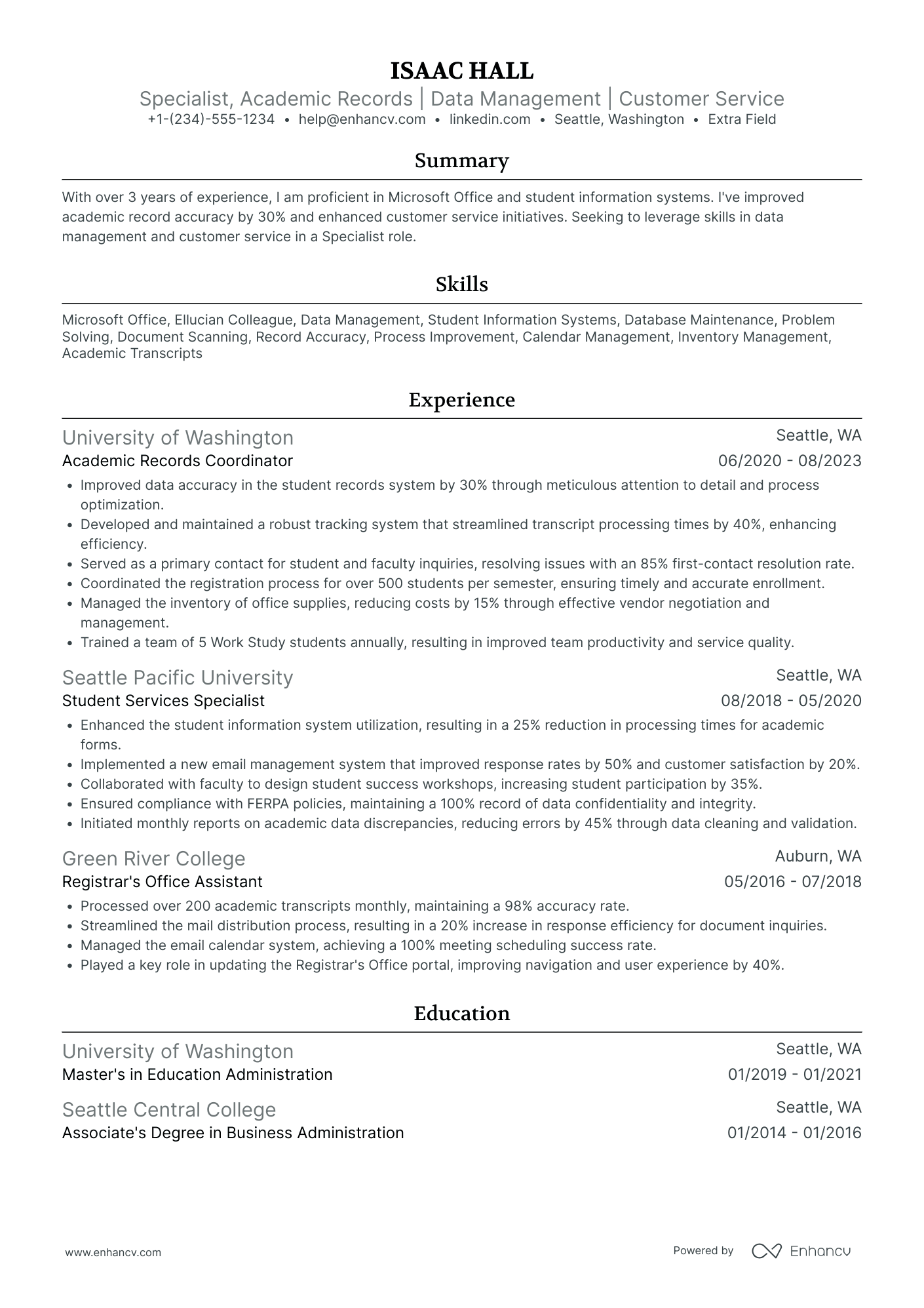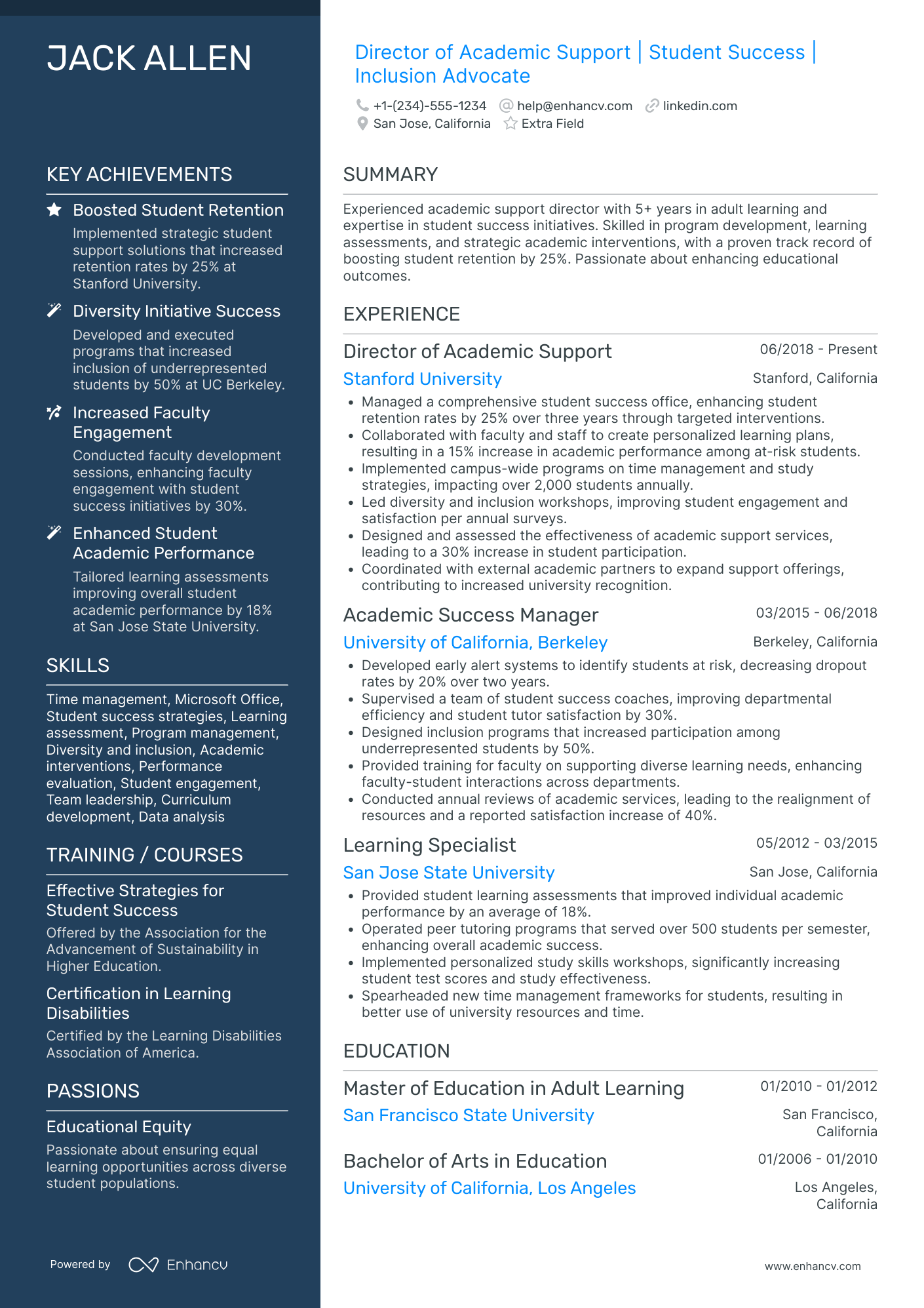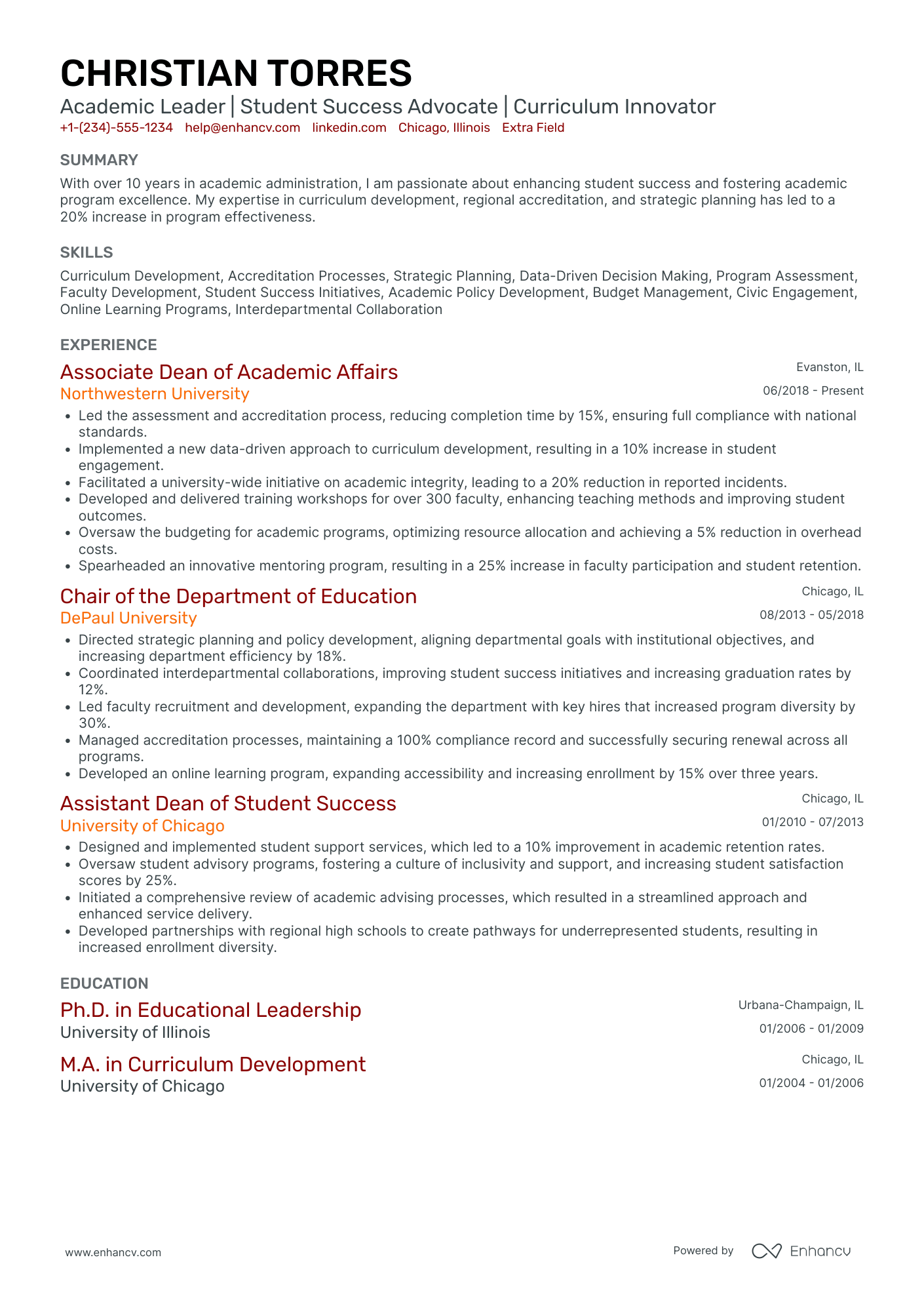The academic job market has become increasingly complex, with tenure-track positions growing at a fraction of the rate of PhD graduates entering the field. As the demand for secure positions outpaces supply, crafting a standout academic resume is more crucial than ever.
This guide will help you highlight your achievements and align your experience with the shifting landscape of academia, ensuring your academic resume—an innovative hybrid between a traditional job-seeking resume and an academic CV—not only showcases your qualifications but also meets the demands of the environment.
More concise and tailored to specific faculty roles, this academic resume guide will be your first step toward securing tenure, whether you’re pursuing a faculty position or a research role.
Key takeaways
- Embrace the new format which provides a concise yet comprehensive overview of your qualifications tailored to the specific academic role.
- Customize your resume to align with the specific requirements of the institution and the job description.
- Place education, employment history, and publications at the forefront.
- Opt for a clear, organized layout with professional fonts and appropriate spacing to ensure readability.
- Include numbers and metrics, especially for administrative roles, to quantify your impact.
- Add sections like professional affiliations, conferences, and references to provide a well-rounded view of your academic contributions.
As you prepare to steer through the postsecondary job market, let’s explore an academic resume template that offers a solid starting point for your journey.
Academic resume sample
An academic resume, a sub-genre of the academic CV, is a specialized document used to apply for positions within academia. Unlike a standard job resume, it focuses on showcasing your academic experience and achievements through additional sections such as publications, research, teaching experience, and professional affiliations.
Here’s how a traditional academic resume example can look:
Diane A. Caesar
Assistant Professor of Political Science
diane.caesar@email.com @LinkedIn Chicago, IL
Professional profile
Dedicated scholar and researcher specializing in Black Politics, with a strong focus on race, social movements, and political engagement within African American communities. Committed to fostering an inclusive academic environment and mentoring diverse students. Experienced in employing both qualitative and quantitative methodologies, with a robust publication record that contributes to the understanding of racial dynamics in American politics.
Education
Ph.D. in Political Science
University of Chicago Chicago, IL
June 2018
- Dissertation: Resistance and Resilience: African American Political Mobilization in Urban Spaces
Master of Arts in Political Science
University of Chicago Chicago, IL
June 2014
Bachelor of Arts in African American Studies
Northwestern University Evanston, IL
June 2012
- Honors Thesis: The Legacy of the Civil Rights Movement in Contemporary Black Political Thought
Professional experience
Postdoctoral Fellow in Black Politics
University of California, Berkeley Berkeley, CA
August 2018 – Present
- Conducted research on Black political participation and voter suppression in the United States.
- Taught graduate seminars on race and American politics, mentoring a diverse group of students.
- Collaborated on interdisciplinary projects examining the intersection of race, policy, and urban governance.
Instructor, Political Science
University of Chicago Chicago, IL
September 2016 – June 2018
- Developed and taught undergraduate courses on Black Political Thought and the Civil Rights Movement.
- Facilitated discussions on contemporary issues in Black politics, encouraging critical analysis and student engagement.
- Supervised undergraduate research projects and provided academic advising to political science majors.
Research Assistant, Political Science Department
Northwestern University Evanston, IL
September 2012 – June 2014
- Assisted in research on the political behavior of African American voters, contributing to multiple publications.
- Conducted data analysis for a study on the impact of social movements on local politics.
Publications
- Caesar, D. A. (2023). Mobilizing for Justice: Black Political Power in the 21st Century. New York: Oxford University Press.
- Caesar, D. A. (2021). Voter Suppression and the New Jim Crow: A Study of Black Political Disenfranchisement. American Political Science Review.
- Caesar, D. A. (2019). The Politics of Resistance: Black Lives Matter and the Rebirth of Civil Rights Activism. Journal of Race and Ethnic Politics.
- Caesar, D. A. (2017). Urban Spaces, Urban Voices: Black Political Mobilization in Chicago. Urban Affairs Review.
Awards and honors
- Best Dissertation Award, American Political Science Association | 2019
- Ford Foundation Postdoctoral Fellowship | 2018 - 2019
- Best Graduate Paper Award, Midwest Political Science Association | 2017
- Graduate Research Fellowship, National Science Foundation | 2014 - 2018
Languages
- English (Native)
- French (Intermediate)
Skills
- R for Statistical Computing
- STATA
- NVivo for Qualitative Research
- SPSS, GIS for Political Mapping
Now, let’s explore how to format your academic resume for optimal impact.
How to format an academic resume
The best format for an academic resume is clear, organized, and tailored to the specific requirements of the institution you’re applying to. As a hybrid between an American-style CV and a job-seeking resume, it combines the strengths of both formats in its structure and content.
For early-career academics, emphasizing education and research interests is key, while those with more experience might lead with teaching appointments and publications. The structure of your academic resume should reflect what’s most relevant to the position you’re applying for, ensuring your strongest qualifications are front and center.
Here’s how the sections in an academic resume are commonly ordered:
Tailor your resume format to the job market – a Canadian resume, for example, might differ in layout.
- Contact Information
- Personal Profile or Research Objective
- Education
- Professional Experience
- Publications
- Awards and Honors
- Skills
- Languages
- (Optional) References
Since your academic resume is a streamlined version of a curriculum vitae, it should highlight your academic milestones while remaining clear and easy to read. Here are some tips.
Design and layout
- Maintain margins between 0.5" to 1" to ensure your resume reads easily.
- Opt for a traditional template which is a must in academia.
- Choose professional fonts like Bitter and Volkhov in size 12 pt, and stick to a black-and-white color scheme to maintain a formal appearance. Reserve italics only for publication titles.
- Don't worry about resume length. With Enhancv's resume builder, you can create a multi-page resume, allowing you to rearrange and customize sections to best illustrate your academic achievements.
Contact information
- Start your resume header by prominently listing your contact details, including your name, phone number, email (e.g., name@harvard.edu), home address, and, if applicable, your institutional address.
- Use a job title that reflects your current academic position or research focus.
- Include a link to your LinkedIn profile if your work spans both academic and industry settings, or if you want to demonstrate a broad professional network. Opt for an ORCID link if your focus is primarily on academic research, publications, and contributions within scholarly communities.
- Omit a photo to keep the focus on your academic qualifications.
File format
- Use a clear and professional filename, such as "DianeCaesarAssistantProfessorResume.pdf".
- Save your resume as a PDF to preserve formatting, unless a different format is specified in the job posting.
PRO TIP
Given the dense and varied information on an academic resume, prioritize clarity and consistency in formatting, especially with dates and bullet points, to prevent ATS confusion and ensure your qualifications are accurately captured.
You can see how your current resume scores against a real academic ATS using Enhancv’s resume checker.
Is your resume good enough?
Drop your resume here or choose a file. PDF & DOCX only. Max 2MB file size.
The right way to list your education on an academic resume
The education section is a cornerstone of your academic resume and typically comes at the top because it lays the foundation of your scholarly journey.
Here’s what to include:
- Degree type and major (and minor, if applicable)
- Institution name
- Dates of (expected) graduation
- GPA and honors (cum laude, Dean’s list, President’s list)
- Thesis title (for higher degrees like a Ph.D.)
- Advisor’s name (optional, typically for Ph.D. and sometimes Master’s)
Details like your thesis title and advisor’s name can be especially beneficial, as they provide potential employers with a deeper insight into your academic credentials and qualifications right from the start.
Here’s a good example of well-presented educational background on a resume:
- •Dissertation: 'Interdisciplinary Approaches to Political Theory and Ethics'
- •Graduated with distinction
- •Senior Thesis: 'The Role of Ethics in Contemporary Political Decision-Making'
- •Graduated summa cum laude
This education section describes the candidate’s academic history in a clear, reverse chronological order that’s easy to follow. Focusing on major achievements, such as dissertation titles and honors, ensures that the most important accomplishments stand out.
Next, let’s explore how the same approach is used to present your academic experience.
How to write your academic resume experience
The employment section builds on the foundation of your academic background. It typically includes roles like teaching and postdoctoral positions, research appointments, leadership activities, and administrative duties.
In an academic resume, the Professional Appointments section should include roles that involve research, administrative responsibilities, or leadership positions within academic or related institutions, such as research fellowships or department chair roles. The Teaching Experience section, on the other hand, is specifically for detailing your roles as an educator. It's important to keep these sections distinct.
When crafting each employment entry, add:
- Your position (contracted ones only)
- Name and location of the institution
- Dates of tenure (years only)
- A brief description of your responsibilities and achievements
PRO TIP
Bullet points are less common on academic resumes but can be beneficial for roles with diverse responsibilities, such as administrative positions or research-intensive jobs, to underline specific achievements or key projects. Use them sparingly to make important details stand out.
When deciding how to word your entries (scholars can struggle with this, too!), it’s important to focus on the position you’re applying for. Unlike non-academic job seekers who prioritize only relevant experience, academic CVs often list every professional appointment, which can lead to overly dense passages.
To avoid this, try resume targeting—incorporate keywords from the job description into your resume. This approach helps make your content more concise and ATS-friendly, ensuring it aligns better with what employers are looking for.
Let’s look at a real-world example of an academic job opening and how an experience section can be tailored to it.
Dean, College of Arts and Sciences
Case Western Reserve University (CWRU) seeks a forward-thinking, highly ethical, and inspirational leader, who shares a deep commitment to higher education, and who is an accomplished scholar to serve as the next dean of the College of Arts and Sciences.
The new leader will join CWRU and the college in the midst of rapid advancement and accelerated accomplishment. This leader will courageously advance the college within and outside of the university, fostering interdisciplinary collaboration in research, creative works, and scholarship. They will also empower highly talented students to be nimble, collaborative, and empowered in a rapidly changing world. The dean will build on the already positive and strong financial status of the college, drive research advancements, contribute to record-breaking fundraising, expand and improve facilities, and cultivate a culture of inclusion. In addition, they will elevate the college's profile nationally, attract top talent in the faculty and staff, and secure resources for continuous growth.
Qualifications:
The dean will possess stellar academic credentials, including a high degree of scholarship/research and a record of distinguished, recognized work in their area of expertise. The dean will hold a terminal degree and qualification for tenured appointment at the rank of full professor in a department within the college.
Here’s the candidate’s tailored resume experience:
- •Led initiatives to enhance faculty development, including mentorship programs and workshops, resulting in a 25% increase in faculty retention.
- •Managed the recruitment and onboarding of over 50 faculty members, contributing to the college's academic growth and diversity.
- •Collaborated with department chairs to align faculty activities with strategic goals, improving overall departmental performance.
- •Increased department research output by 40% through strategic faculty recruitment and development initiatives.
- •Fostered interdisciplinary collaboration, leading to the creation of joint programs with the departments of Sociology and Economics.
- •Implemented curriculum reforms that improved student engagement and academic outcomes, resulting in higher retention and graduation rates.
- •Mentored over 30 Ph.D. candidates, many of whom have gone on to secure tenure-track positions at leading universities.
- •Coordinated national and international conferences, elevating the department's profile and fostering global academic partnerships.
The candidate’s career path is clearly outlined, with key highlights including:
- The positions reflect a career progression relevant to a Dean's role, with prestigious institutions like the University of Chicago and Princeton University.
- The bullet points emphasize leadership in fundraising, diversity, interdisciplinary collaboration, research output, and mentoring, which align with the job description's focus on advancing the college's mission.
- The resume format underscores major achievements in each role. Hiring committees can see how the candidate's experience matches the demands of the position at CWRU.
PRO TIP
In academic resumes, the focus is often on significant milestones like peer-reviewed publications, which speak for themselves. However, for more task-driven or administrative roles, it’s beneficial to include numbers and metrics—such as fundraising amounts or percentage increases in research output—to quantify your impact and provide concrete evidence of your successes.
Next, let's explore how to craft an academic resume for those entering the field for the first time.
How do i write a postsecondary teacher resume with no experience
Earning tenure can take up to 7 years, with progression through ranks like assistant professor, associate professor, and professor. Because tenure decisions rely heavily on your research and institutional contributions, it's crucial to clearly reflect these on your resume.
Below are some guidelines you can follow:
- Mention any significant research projects and publications, as they showcase your expertise and contributions to your field.
- Include any teaching roles or assistantships, as these prove your ability to educate and engage with students.
- List relevant academic awards and fellowships to show recognition of your potential and accomplishments.
- Add a dedicated section for certifications, particularly if you’re teaching in a field where students need a license or certification. Having these credentials yourself is expected and adds to your credibility.
- Don’t overlook relevant coursework that aligns with the job, as it shows your preparedness and knowledge in key areas.
PRO TIP
For professionals transitioning into academia, emphasize how your industry expertise can enrich academic programs by underlining relevant experience and transferable skills. Leverage your social presence by showcasing engagement with the academic community through platforms like LinkedIn. This demonstrates your thought leadership and readiness for an academic career.
Next, let’s discuss how to properly list your academic publications on a resume.
Publications on an academic resume
Publications are typically listed near your employment history, and in some cases, they might even precede it. This is because being published often requires significant effort and is a major indicator of your expertise and impact in the field.
You can include various types, like peer-reviewed journal articles, book chapters, conference papers, and edited volumes. Just remember to place peer-reviewed and non-refereed publications (articles, essays, opinion pieces) in separate sections.
Here’s what to consider when listing your peer-reviewed publications:
- Put them in reverse chronological order so your most recent work stands out.
- Stick to a consistent citation style (like APA, MLA, or Chicago) that’s common in your discipline.
- Include all the important details: authors, title, journal or book name, volume, pages, and publication year.
[...] forthcoming publications are included in this section. If they are already in the printing stage, with the full citation and page numbers available, they may be listed the same as other published publications, at the very top since their dates are furthest in the future. If they are in press, they can be listed here with “in press” in place of the year.
Karen Kelsky, PhD, author of The Professor Is In
Equally important are your awards and recognitions. Learn how to list them from the following section.
Awards, honors, and grants on an academic resume
These essential elements of your resume demonstrate your ability to attract funding, excel in your field, and contribute meaningfully to academia.
Examples include:
- Research grants from institutions like the NIH (National Institutes of Health) or NSF (National Science Foundation).
- Fellowships awarded for academic excellence or research potential.
- Teaching awards recognizing outstanding contributions to student learning.
- Conference awards for best paper or presentation.
- Scholarships received for academic merit or specific research projects.
When listing your recognitions, prioritize relevance and list them in reverse chronological order. Include key details like the award name, institution, and date. If you have many awards, consider separating them into categories (e.g., research grants, teaching awards) to keep your resume organized.
Moving on, let’s focus on how you should present your academic skills on your resume.
How to list your academic skills on your resume
Although not very common, you can still include a skills section on an academic resume. This is especially valid in fields that require specific technical or methodological expertise, such as STEM, social sciences, and certain humanities disciplines.
Below is a list of hard skills that can enhance your academic resume.
Key hard skills for your academic resume
- Technical skills: For fields like engineering, computer science, or data analysis, list specific software, programming languages, lab techniques, or equipment you’re proficient in.
- Research skills: Mention specific methodologies, statistical analysis tools, or research techniques relevant to your field.
- Teaching tools: If you have experience with online teaching platforms, learning management systems (LMS), or curriculum development software, these are worth mentioning.
- Language proficiency: If relevant to your research or teaching, include any languages you speak fluently or can read and write in an academic context.
Don’t list soft skills on your academic resume, as they are considered subjective and less impactful than demonstrating your expertise through concrete achievements. Instead, focus on quantifiable hard skills that directly relate to the role you're applying for.
Now that we've covered all the essential sections, you might be wondering whether it’s time to include a personal profile. Below’s our take on it.
Should i write a personal profile for my academic resume
Include a personal profile on your academic resume to capture the attention of search committees, who often review resumes before any other application documents.
Similar to a resume summary, a personal profile offers a brief overview of your academic focus, key achievements, and career goals. This section is especially useful for early-career academics or those transitioning into academia, as it quickly spotlights your strengths.
Look at an example tailored to the job description provided earlier:
In contrast, a research objective is more specific, focusing solely on your research interests and how they align with the position you’re applying for. It’s also particularly beneficial for early-career researchers, postdoctoral fellows, or graduate students who are looking to establish themselves in a specific research area.
Here’s a strong example of a research objective you can emulate as a new academic:
A good profile or objective on an academic resume should clearly convey your academic focus and unique qualifications without becoming overly verbose. To keep readers engaged, use keywords from the job description and let your accomplishments reflect your credibility.
Finally, let's explore the optional sections you can include on your academic resume, which may vary depending on the specific requirements of different institutions.
Optional sections for an academic resume
Additional sections on an academic resume allow you to emphasize specific strengths or experiences that align closely with the unique expectations of the institution.
Here’s what you can consider including:
- Professional affiliations: List memberships in academic or professional organizations to show your active engagement with the scholarly community.
- Conferences and presentations: Detail your involvement in academic conferences and presentations to highlight your role in disseminating research and contributing to your field.
- Service and leadership roles: Outline your service on committees or leadership in academic initiatives to illustrate your commitment to the broader academic community.
- Public engagement and outreach: This section can show how you’ve extended your academic work beyond the university, engaging with the public or industry to broaden the impact of your research.
- References: Often mandatory, a references section can provide immediate access to your academic and professional contacts who can vouch for your qualifications and character.
When listing your references, write each reference's name, current title, institution, and contact information (email and phone number). For example:
Dr. Maya Smith
Professor of History
University of Chicago
Email: jane.smith@university.edu
Phone: (123) 456-7890
- Typically, list 3-5 references, starting with those most relevant to the position, such as your Ph.D. advisor or current department chair.
- Always obtain permission from each reference before including them on your resume, ensuring they are prepared to speak positively on your behalf.
In conclusion
Crafting an academic resume is about more than listing your credentials. It’s about aligning your aspirations and experiences with the specific needs of the role and the standards of the institution. By carefully tailoring your resume to reflect these expectations, you'll ensure that your qualifications are presented clearly and effectively to search committees.
Academic resume examples
By Experience
By Role
